
Prospectus 2025 -2026



Prospectus 2025 -2026

It is with enormous pleasure that I welcome you to this latest edition of our Sixth Form Prospectus. I hope the pages that follow inspire you to join us for the most exciting two years of your education so far.
The King Edward VI Sixth Form is full of enthusiastic young people that are unafraid of challenge, and care enormously about the people and environment around them.
Our Sixth Form is unashamedly academic. Classes are small and taught by subject specialists. You will be encouraged to debate and challenge ideas, have open-minded discussions and explore your subjects in both breadth and depth. Many will choose to maintain a wider curriculum by embarking on the Extended Project Qualification.
Our academic curriculum is complemented through the Foundation Studies programme. Here all our pupils develop the wider skills needed for future success; the core programme ranges from delivering presentations to personal finance, politics to sustainability while optional modules include cookery, art-appreciation and travel safety. Additionally, we welcome a diverse range of guest speakers to the Open Forum programme. All Sixth Formers are expected to attend these carefully curated weekly talks that seek to widen their understanding and challenge their preconceptions through speakers with interesting and inspiring stories to tell.
Many of our Sixth Formers choose to stay well beyond the end of the school day; to work in the Concourse or the Library, to take part in sport or rehearse for a drama production, to use the gym facilities or the Art Studios. Being a Sixth Former at King Edward’s means being inquisitive, ambitious, caring and inclusive. It is the time where you get to specialise
academically, develop your independence and challenge yourself personally.
Through all this we seek to support you with outstanding pastoral care. A team of dedicated tutors work with each pupil individually to support their progress during the Sixth Form, and supported by the Careers and Higher Education team; we work to support you and help you realise your next steps beyond our gates.
We are incredibly proud of our Sixth Form and welcome you to come and visit us, to see for yourself the opportunities on offer.
Dr Emma Thomas Director of Sixth Form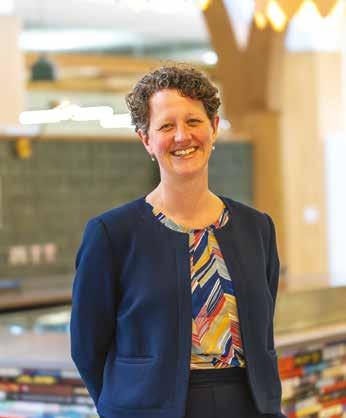
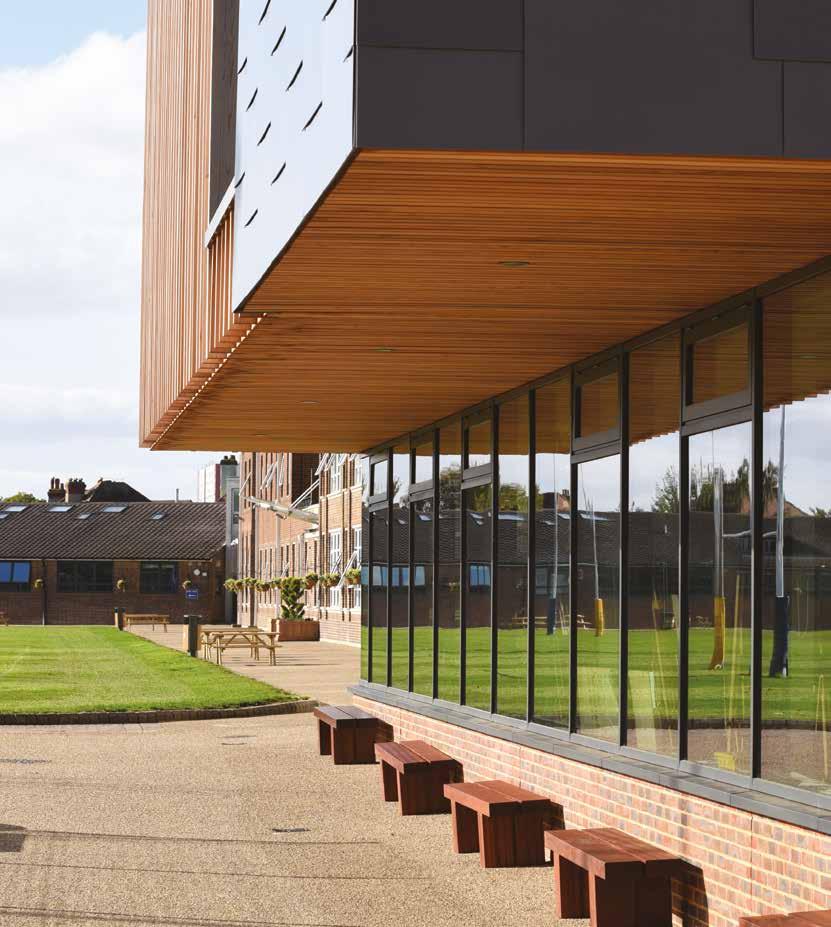

In the last 5 years
31
Last year
8 95% 95%
In 2023, 84 students were accepted to Russell Group Universities with 6 students accepted to Oxbridge
58.2% of grades were A* and A have been offered places at Oxford and Cambridge have been offered places for Medicine, Dentistry and Veterinary Science
27
A level subjects
In the last 5 years of students achieved A* - C grades of students that applied achieved a place at either their first or second choice university
49
An average class size of 8 students students
Clubs & Societies
Exclusive to KES Sixth Form
Dedicated Study Space
Winning ConcourseOur dedicated space for Sixth Formers
Trips to a range of destinations including Sri Lanka, Thailand, Prague, New York and many more.
Guest Speakers at Open Forum talk to students weekly, sharing diverse life stories and insights into various fields.
Be part of an Alumni Network of Nominated for Outstanding Pastoral Care In The 2023 Muddy Stilettos Best Schools Awards 12,000 Old Edwardians School Leadership Opportunities
Previous guest speakers have included: Chris Lubbe – Nelson Mandela’s former body guard, Josh Coombes - ‘Do something for nothing’ founder, Francis Benali – charity fundraiser and former professional fotballer, and Natasha Devon - Body image and mental health campaigner.
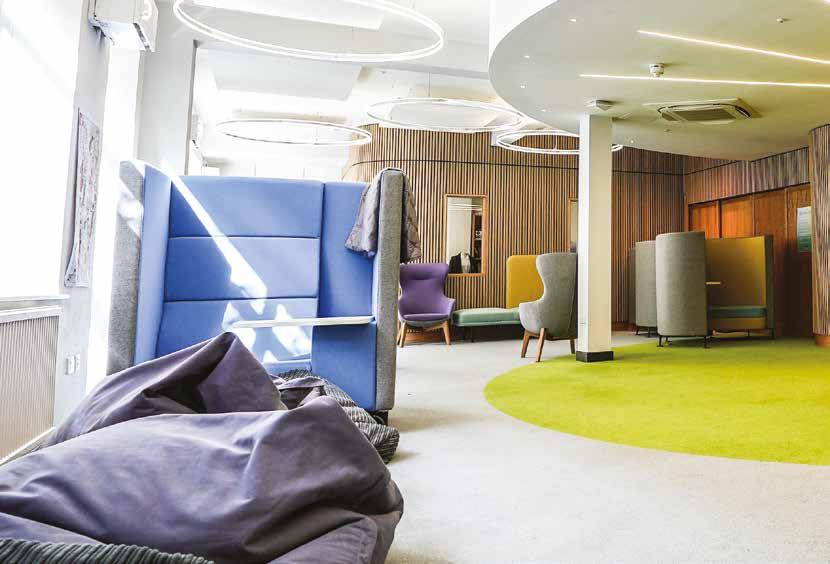
King Edward’s is committed to providing pastoral care of the highest quality to all of its students.
The School takes a whole school approach to focusing on each individual emotionally and physically, and installs an ethos among students of supporting one another. Each student is closely monitored through the roles of tutors, teaching staff and non-teaching staff. Each student has a range of resources, communities and people to go to for support.
Your Head of Year has an office in the Concourse and is available every day before school, and at numerous points throughout the day, to talk to you about any aspect of your school life or academic, personal and social development. They will offer practical and emotional support throughout your two years in the Sixth Form.
Your tutor will play a key role in your time at Sixth Form. Your tutor will get to know you well, monitor your progress and support and guide you. You’ll have time with your tutor four mornings a week.
We have an experienced counsellor onsite throughout the school day. Students can book a confidential slot with the counsellor for support, whether it’s school related or not.
All students at King Edward’s have, as a matter of principle, equal access to the school’s curriculum, notwithstanding any disability or identified learning difficulties. Sixth Form students, who have been assessed with a Specific Learning Difficulty and are on the Curriculum Support Register, will be monitored and their provision based around their SEN reviewed annually. Examples of support that can be offered by Curriculum Support include: study skills, literacy and social emotional intervention.
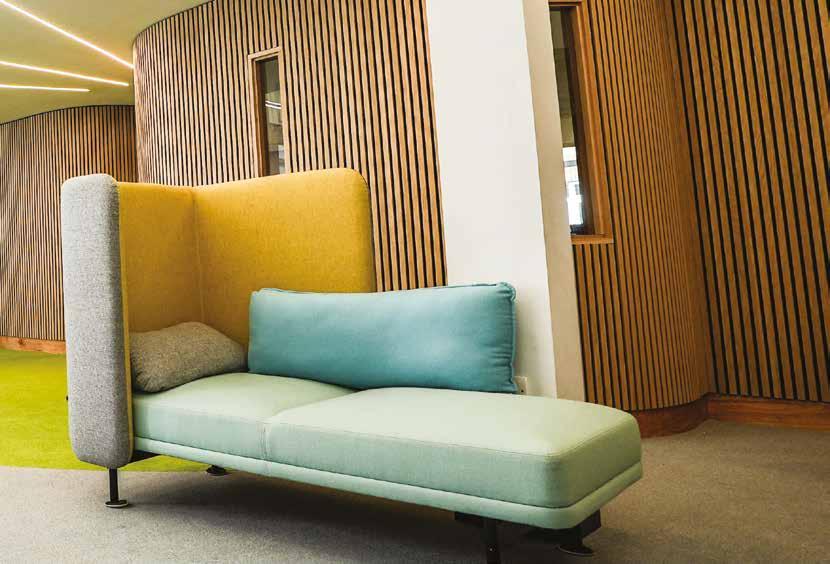
We have a team of school nurses on-site throughout the school day. Students can pop in and see the nurses at any point.
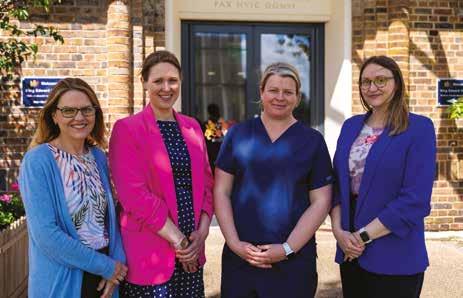
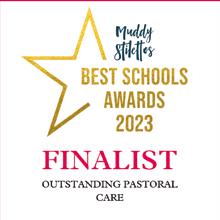
King Edward VI School was shortlisted for Outstanding Pastoral Care In The 2023 Muddy Stilettos Awards.
"We are incredibly proud of the pastoral care here at King Edward VI School, Southampton. We can see first hand the impact these changes have made to our students and the communities around us. Whilst our vision has become a reality, we strive continuously to improve and ensure we are offering the most outstanding pastoral care to the young people in our care"
- Mr. Parker, Head
The Sixth Form Concourse is a dedicated space for Sixth Form students to study, relax, and meet friends in between lessons.
The Concourse opened in September 2022 and provides our Sixth Form students with a modern, versatile and purpose designed hub in which students can work, socialise and relax.
The exciting addition of our café provides students with the chance to make themselves drinks and snacks whenever they’re in need of a pick-me-up. The café also operates a ‘grab and go’ lunch service, providing those who sign up to school lunches the choice of delicious street food options. The large, open and modern area surrounding the café, provides students with the space to socialise, relax and spend some time away from the rest of the school.
There is a large dedicated study centre. Students can use this during free periods, before and after school and for private study sessions. The space is completely laptop friendly, with printing facilities, ample desk space, individual booths and group tables, perfect for collaborative working.
Our Sixth Form Concourse has won an award for its outstanding design. The building which acts as a communal hub for our Sixth Form students won the Mixology23 Project of the Year: Public Sector & Cultural Interiors award in 2022
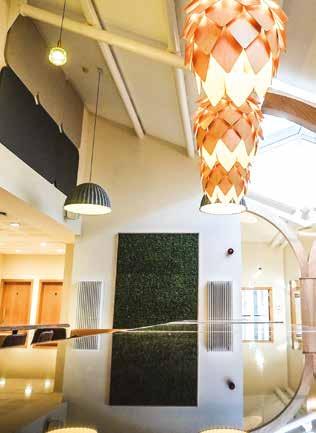
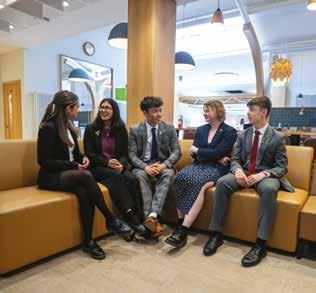

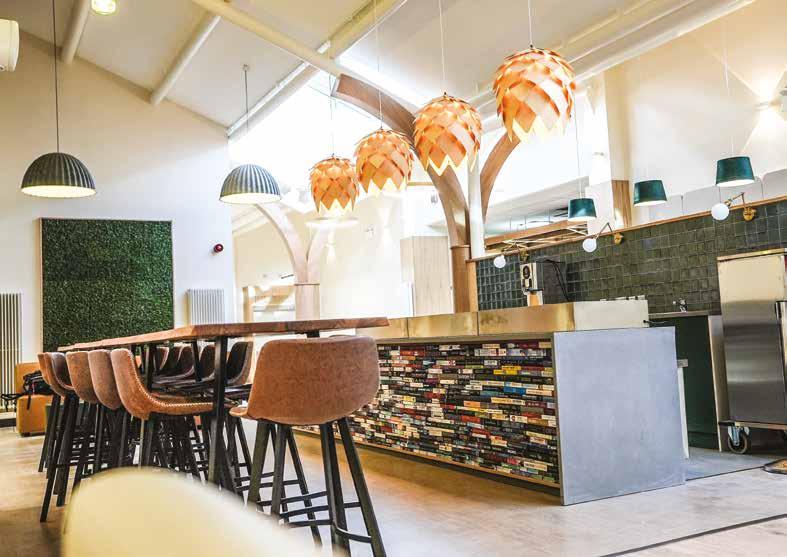
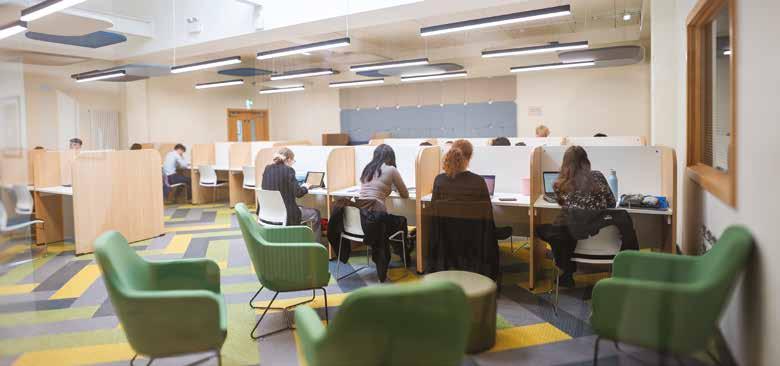
From a dedicated space for Sixth Formers, study spaces, fully equipped classrooms, science labs, a modern theatre space, a dance studio, extensive sports facilities, a library home to over 15,000 books, and more, students have all the resources to support them during their time at King Edward ‘s Sixth Form.
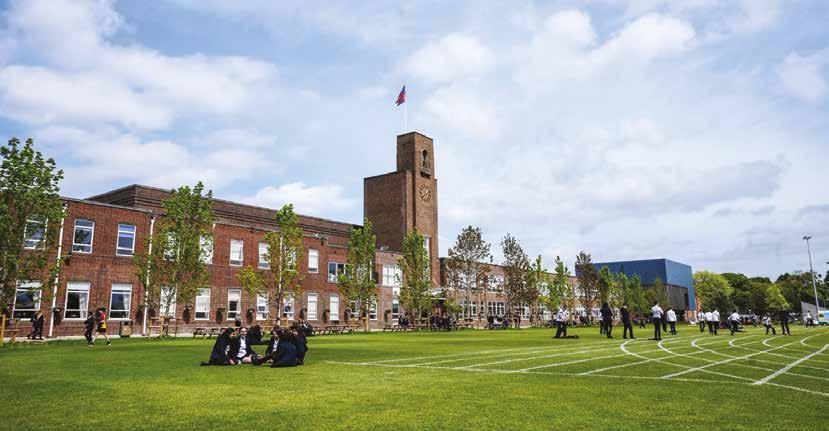

King Edward’s has occupied the Hill Lane site since 1938. With over thirteen acres it comprises an extensive range of facilities including a number of additions and major refurbishments completed over the last few years. The site also has a games field, a sports hall, netball courts and a full astro pitch.
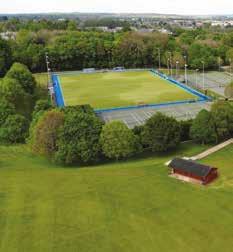
Situated on Stoneham Lane, just ten minutes from the main school site, the Wellington Sports Ground was purchased in 2004 from the University of Southampton. It contains thirty-three acres of grounds, six tennis courts, four netball courts and a water based astro pitch. A large pavilion with eight changing rooms, a kitchen and catering facilities for over one hundred students is also available.

The Study Centre is a dedicated space neighbouring the Sixth Form Concourse just for Sixth Formers. Students are encouraged to use this space for independent, quiet study away from distractions.
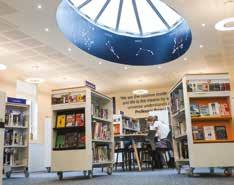
The library is the heart of the school. Recently fully renovated, this bright, popular space can be used for study, reading, meeting like-minded peers and joining our Library Leader team. Spread over two floors, the library area provides a mix of formal work space and comfortable quiet reading areas, home to over 15,000 books, including fiction, nonfiction, magazines and academic texts.
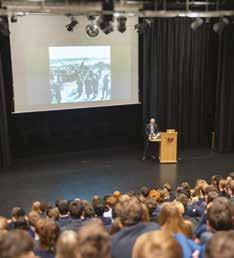
The Dobson Theatre is a modern, versatile space designed to host a diverse programme of events for the school. The Dobson Theatre is frequently used for plays, music, dance, presentations and lectures.
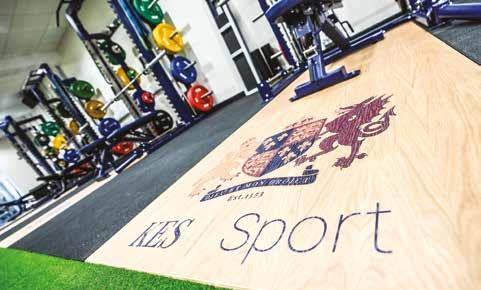
Sixth Formers have the opportunity to develop physically through the use of our fitness suite. All students are inducted on how to use age appropriate movements and equipment in the facility and this gives them the opportunity to attend the fitness suite during lunch times, in free periods and after school. Students are
educated on how to develop their own training programmes, as well as having access to specialist 1:1 advice from the Head of Strength and Conditioning. There are also weekly fitness classes run in the suite that aim to challenge students to ensure they reach their physical ambitions.
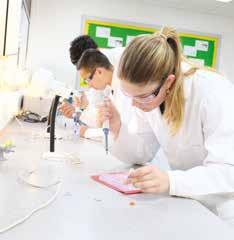
There are 92 classrooms available to students at our Hill Lane site. All classrooms are large and fully equipped with technology and facilities to assist students’ learning, including science labs, dedicated music practice rooms, recently extended art studios and ICT rooms.

The Wellbeing Centre connects all of the relevant areas of the school for enhancing the students’ wellbeing: learning support, the counsellor, the chaplain, the nurses, and a dedicated wellbeing room. The wellbeing room has been designed to be a quiet space in the heart of the school where any student can go when they need to get away from the hustle and bustle of school life. The extra comfy chairs and bean bags are ideal for our Peer Support programme, in which students offer their time to talk to younger students and offer support.
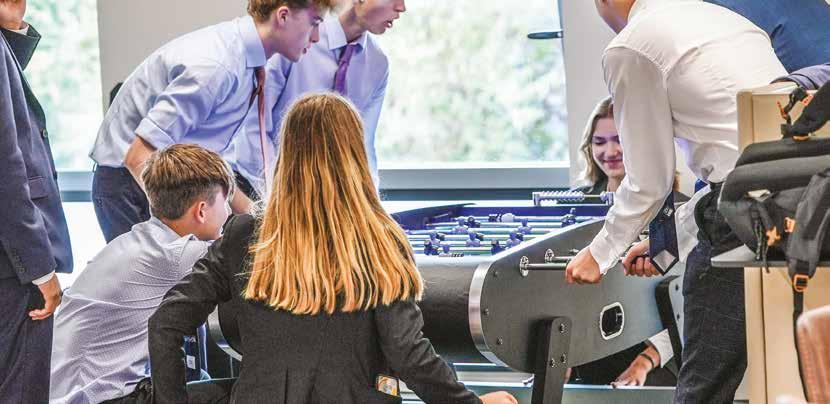
The King Edward’s Sixth Form aims to develop young men and women who are well prepared to face the challenges of university life and beyond. They will have achieved their short term goals – good A level results – and will be able to bring to bear the relevant life skills and adaptability needed in order to enhance their prospects beyond education.
At this stage of a young person’s education, the emphasis should be on what is possible. The academic rigour
of the Sixth Form curriculum at King Edward’s lays the foundations, but what happens beyond the classroom plays a crucial role in making them rounded individuals.
A vibrant co-curricular programme emphasises our belief that education is more than a set of grades. Our Sixth Formers are encouraged to take the opportunities that are on offer, at home and abroad. Throughout these crucial two years, the students are guided by a tutor in small groups. Our Higher Education advice is well targeted and successful in helping the students to get the attention they need to make the most of their abilities.
The Sixth Formers will also get the opportunity to sign up for expeditions –recent trips have included the Himalayas, Cambodia/Thailand, Belize, and Alaska. Projects run by the Sixth Form students include a long-established Summer Camp for local young carers and Portsmouth Down Syndrome Association (PDSA).
The School is committed to encouraging each Sixth Former to challenge themselves. Through travel, or
contributing to a team working on a project, they each discover what they’re truly capable of.
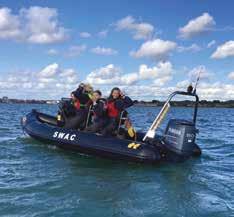
Outside of the classroom, students are encouraged to get involved in a wide range of co-curricular activities, clubs and societies. Most of the opportunities are run by staff members, with a few organised and run by the students themselves. There are over 21 clubs and societies exclusive to the Sixth Form.
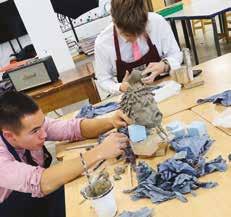
Students will have a wide range of opportunities and experiences beyond the classroom. Whether they are learning Mandarin, self-defence, research skills or student cookery, our aim is to encourage students to embrace new challenges that build their confidence and resilience. Academic ambition and success is enhanced by a positive mindset that we encourage students to adopt in a variety of environments.
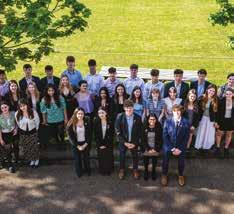
There are plenty of opportunities for students to build and practise leadership skills. There are formal and informal roles of responsibility for students to get involved with.
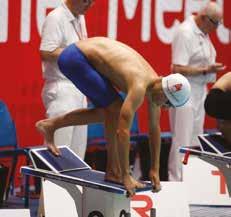
Every Sixth Former takes part in our Wednesday afternoon Games programme. This programme gives each student a chance to switch off from academic work, and to engage in something physical. There are also opportunities for students to represent the School, in sport through competitive fixtures. A selection of Sixth Formers are invited to join the Elite Sports Performers Programme.
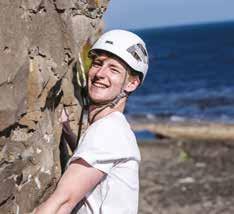
Within the Sixth Form there will usually be around 100 students engaged in the Duke of Edinburgh Awards; some completing their Silver Award, and others already making progress on their Gold Awards.

There is a myriad of opportunities for students wishing to express themselves through the Creative Arts. Enabling our community to develop intellectual curiosity through the Creative Arts and embedding the value of creativity in the culture of the Sixth Form is what we celebrate!
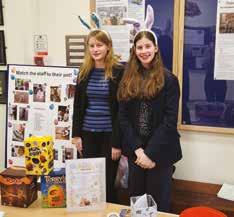
Our Charities Commission is headed by Sixth Form students, they spearhead school-wide awareness campaigns and fundraising efforts, rallying the entire student body to get involved. They organise a diverse array of events and support three charity projects distinct to the Sixth Form. Our sixth form students are also encouraged to support our partnership events.

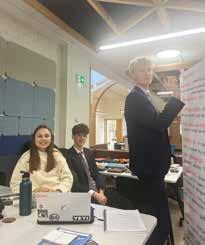



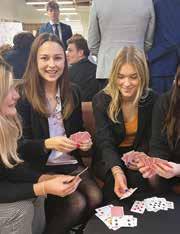


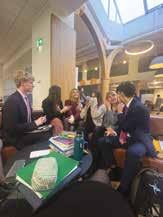









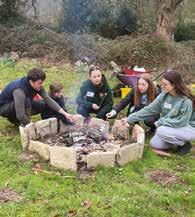

Isla is one of our Upper Sixth students and has kindly documented her typical week here in our Sixth Form. Follow her through a week of studying, lessons, co-curricular activities and socialising. To read her full case study see page 37.

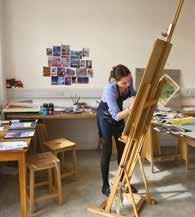










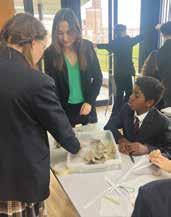





P2 09:10 - 10:00 Free Period 09:10 - 10:00 Art 09:30 - 10:15

P1 08:40 - 09:05 Registration 08:40 - 09:05 Registration 08:40 - 09:25 Free Period 08:40 - 09:05 Registration 08:40 - 09:05 Registration
09:10 - 10:00 Business 09:10 - 10:00 Business
P3 10:05 - 10:55 Business 10:05 - 10:55 Art 10:20 - 11:05 Art 10:05 - 10:55 Business 10:05 - 10:55 Art
P4 11:15 - 12:05 Geography 11:15 - 12:05 Free Period 11:25 - 12:10 Free Period 11:15 - 12:05 Open Forum 11:15 - 12:05 Business
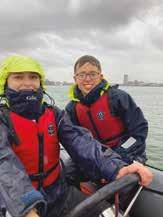
P5 12:10 - 13:00 Free Period 12:10 - 13:00 Geography 12:15 - 13:00 Free Period 12:10 - 13:00 Free Period 12:10 - 13:00 Free Period 14:10Foundation15:00Studies 14:10 - 15:00 Games 14:10 - 15:00 Geography 14:10 - 15:00 Geography Foundation Studies 15:05 - 15:55 Games 15:05 - 15:55 Geography 15:05 - 15:55 Art








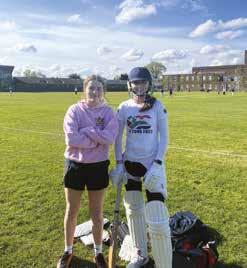






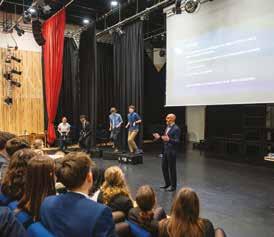
In the Sixth Form we believe that students benefit enormously from engaging with more than the A Level syllabus of their chosen subjects. Academic and personal development is enhanced by learning new skills, sharing experiences and striving for ambitious goals.
We want our students not just to succeed in their examination courses but also to look beyond Sixth Form to undergraduate study, professional qualifications and career pathways. We encourage our students to think about where they would like to be in 5 years or 10 years and how they can achieve these goals. We have created an academic enrichment programme that offers students plentiful opportunities to both hone fundamental skills, push the boundaries of their intellectual world and experience entirely new fields. There are 4 elements to academic enrichment in the Sixth Form with each element providing a different way in which students’ formal education is complemented by less formal learning.
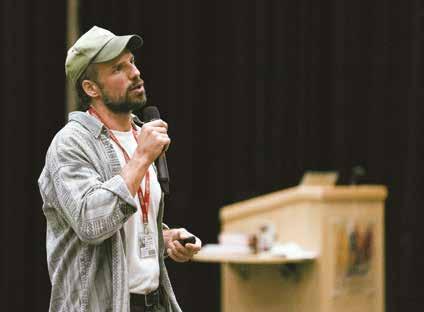
During the course of their time with us in the Sixth Form, students will hear from over 40 guest speakers during weekly Open Forum sessions. We invite a range of inspiring individuals into School to talk about their achievements, how they have overcome challenges and what inspires them. Our speakers are explorers, fundraisers, authors, photographers, scientists, mental health champions, military veterans, Holocaust survivors and a former bodyguard to an icon of the twentieth century. We invite speakers from both the local area and further afield and we often hear from Old Edwardians (KES Alumni). Each story that our students hear gives them an insight into life beyond school, beyond the classroom and beyond their own experiences.
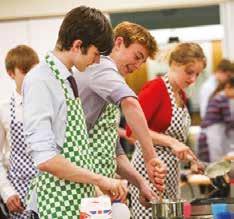
Enabling our students to make a successful transition from GCSE studies to A level studies and from adolescent to young adult is at the core of our Foundation Studies programme in the Lower Sixth. Here, all students participate in a series of three week courses throughout the whole academic year. These cover areas linked to academic engagement, wellbeing, citizenship and planning for life after the Sixth Form. These courses are delivered by teaching staff who have particular interest and expertise in these areas as well as some external providers.
• Academic Research Methods
• Presentations
• Health & Sexual Wellbeing
• Politics & You
• Student Finance
• Living Sustainably
• Essential First Aid
• Introduction to UCAS
• Gap year planning
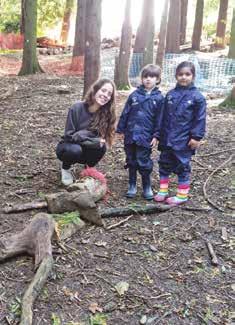
The enrichment courses on offer in the Upper Sixth aim to give students the opportunity to try entirely new activities or return to those that they’d like to brush up on. By engaging in creative, physical and practical challenges students will enjoy a different type of learning and push themselves to embrace the unfamiliar.
We offer over 20 different courses from which students select 5 to participate in during the Autumn and Spring terms. Each course runs for 4 weeks apart from Japanese and Mandarin that last for two terms and are certificated.
These courses are delivered mainly by King Edward’s staff with a particular expertise in that field although we also work with external experts and professionals..
Languages
• Japanese
• Chinese Arts & Culture
• A Bluffers’ Guide to Culture
• Photography
• Holiday Italian
• The Story of Film
• Dungeons & Dragons
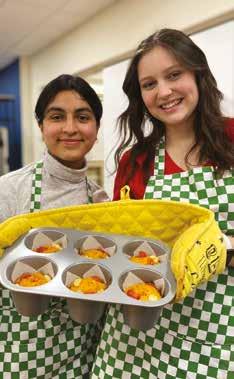
• Powerboating
• Strength & Conditioning
• Self Defence
• Navigation & Seamanship Mental Wellbeing
• Resilience – turning pressure into performance
• Mental Health First Aid Kit Community
• Science Roadshow
• Forest School
• Volunteering Practical skills
• Touch typing
• KESTED
• Survival Cookery
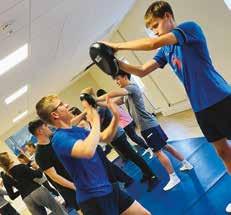
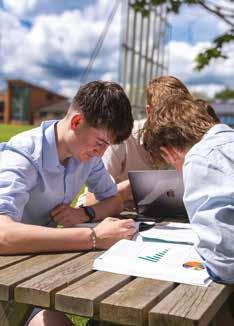
All students have the option to undertake the Extended Project Qualification which is equivalent to half an A level once completed and assessed. Students choose a research topic in the Lower Sixth and are supported to frame this into a specific line of enquiry that they commence research for in the Summer Term. Students are allocated a supervisor who will guide them through initial research in the Summer Term and the writing up process in the Autumn Term. The EPQ culminates in a presentation evening in the Spring Term when students will present their research to the KES community. Each supervisor is responsible for a small group of students enabling them to build strong working relationships and give personalised guidance. In recent years the topics researched have been hugely varied: land reforms in Zimbabwe, the biodiversity of the New Forest, and the effects of blue light on sleep, gene therapy as a treatment for macular degeneration, human rights and secret courts, contemporary Japanese literature and sustainability in fashion.
Full details of this course can be found on page 52.
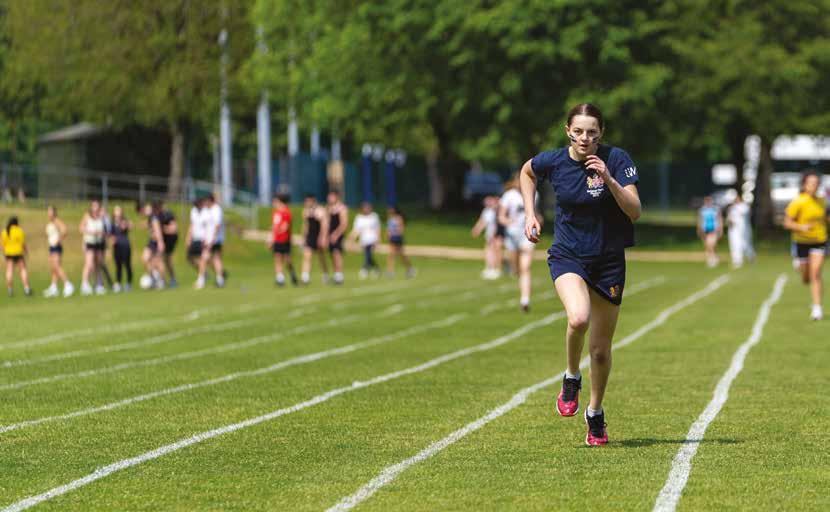
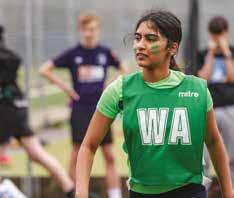
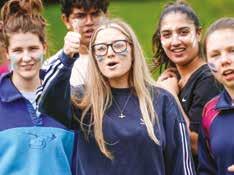
Taking part and competing in sporting activities is a big part of life at King Edward’s, and we believe it’s important to follow a path of commitment, preparation and hard work.
There is a wide variety of sports on offer in the Sixth Form. Beyond the two weekly timetabled Games lessons Sixth Formers participate in (which include: fitness, climbing, pilates, golf and archery), students have the opportunity
to represent the School in sport. Competitive fixtures usually take place on Saturdays at Wellington, or at the competitor school’s location. Students involved in competitive fixtures are expected to attend after school training sessions, and will practise the sport during Games lessons.
The major competitive sports are rugby, hockey and cricket for boys, and hockey, netball and cricket for girls. Each of these sports also enter national cup competitions and have had good success in recent years. There is also a boys’ football team, that competes in the local Sixth Form College league, with fixtures taking place in the timetabled Games lessons. There are also opportunities to compete in other sports, including badminton, tennis and basketball.
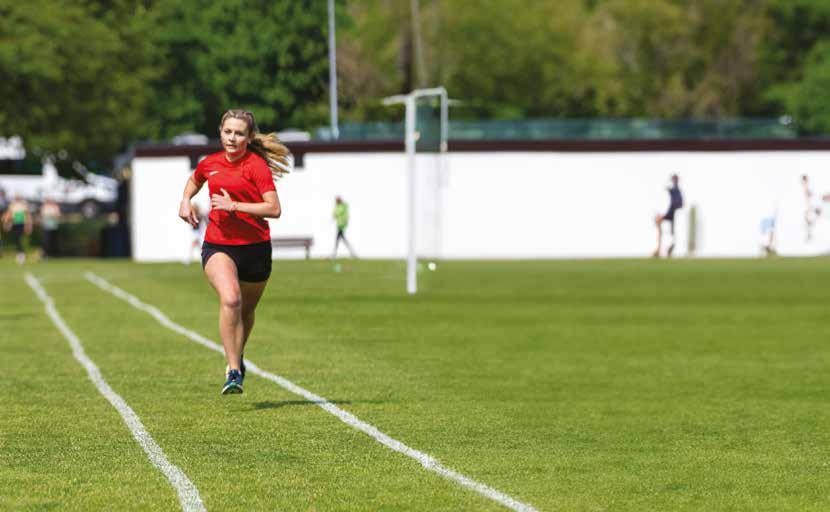
There are over 50 students at King Edward VI Sixth Form who are competing in their chosen Sport at a regional level or higher. The Elite Sports Performer Programme aims to provide these students with an additional support system, to assist them in achieving their potential in their sporting field whilst also fulfilling their academic goals.
Students who are invited on to the programme will receive mentoring support that works alongside the whole school pastoral system as well as access to the fitness facilities, tailor-made training programmes (if required) and an invitation to a series of talks from visiting speakers that cover a wide range of topic areas that are relevant to sports performance at a high level. Students will also have the chance to present to younger students in the school about their sporting achievements.
Our Elite Performers are fortunate to receive expert Strength and Conditioning advice in the form of a series of workshops and personalised 1:1 sessions. Students are taught how to move effectively in Strength and Conditioning sessions, the sessions also provide the athletes with a personalised training programme.
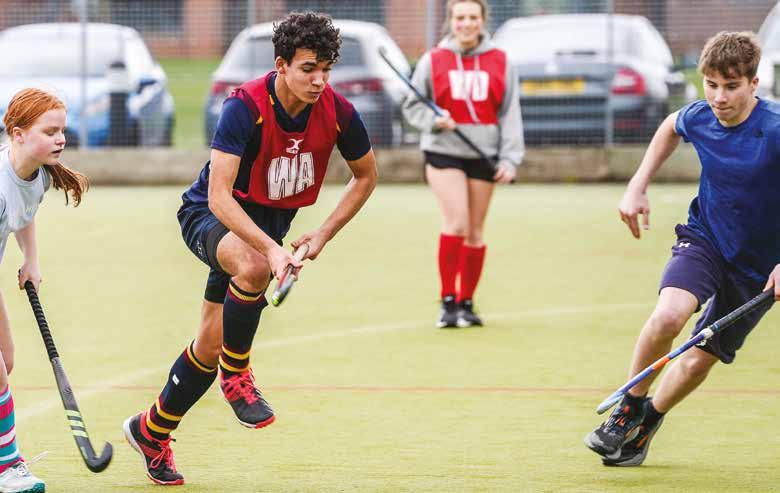
The Elite Sports Performer Programme supports our Elite Sports Performers in achieving both their sporting and academic potential, through:
• Assisting our Elite Sports Performers in managing their time between training, competing, resting and studying
• Liaising with their coaches
• Communicating with their subject teachers at King Edward’s and making them aware of their commitments to their sport throughout the week and at weekends
• Assisting in their short term and long-term goal setting
• Offering students Strength and Conditioning workshops to help minimise risk of injury
• Supporting the Elite Sports Performers throughout their potential rehabilitation processes
• Increasing awareness of sporting issues through a series of talks and visits
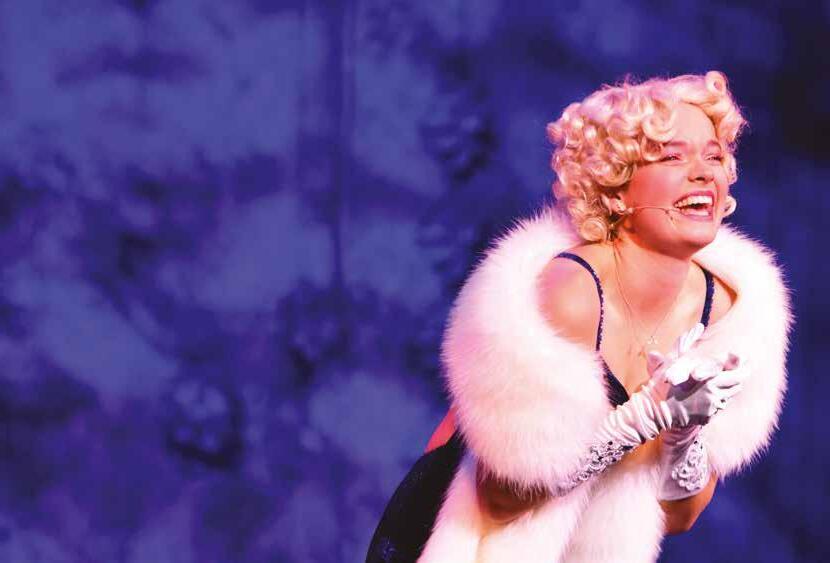
The Creative Arts Faculty champions opportunity in the arts. Engaging creatively, building core strengths and qualities enables our community to expand intellectual curiosity through the Creative Arts. Embedding the value of creativity in the culture of King Edward’s is what we celebrate!
Creative Arts will give you skills such as resilience, problem solving, confidence through performing, critical thinking, community and social collaboration, wellbeing, organisation, team work and creative thinking; the list goes on and on. Our programme offers exceptional choice and opportunity to develop intellectual curiosity. Whether you have a passion for photography, musical theatre, or dance, we encourage everyone from enthusiasts to experts to get involved.
The Drama department boasts fantastic opportunities in the Sixth Form for productions and plays. The Dobson Theatre is well equipped for those not only with an interest in dramatic performance to engage but production, behind the scenes lighting and sound tech. We run masterclass workshops with industry professionals and run
regular theatre trips. The A Level Drama course is a comprehensive course of study which equips students to gain transferable skills but also to be successful in further pursuits in the Theatrical industry with many going on to secure Drama School positions.
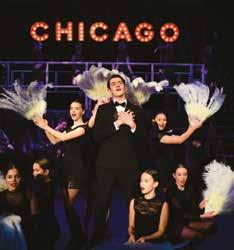

The Dobson Theatre houses our Steinway concert grand piano, used in our regular recitals, concerts, and masterclasses as part of the Music Department’s annual programme. There are opportunities for students of all abilities to partake in a wide range of choral, jazz and orchestral ensembles. Our rock and pop musicians

can make the most of our recording studio and showcase their talents at our annual Battle of the Bands.
The expanding and vibrant Dance Department has a purpose-built dance studio which hosts a diverse range of clubs to suit interests from ballet, street to musical theatre. The pinnacle of the Department is the spectacular annual Dance Gala which showcases dancers of all styles and abilities. The Department is designed to give opportunity to explore capabilities and self-expression in a thriving and inclusive environment.
Art has a purpose-built studio, with an open-door policy. Inventive imagination is greatly encouraged, and the Sixth Form have opportunities for life drawing as well as the rich art and photography clubs available.
Sixth Form Music Scholars reflect the most able and highest achieving of our performers here at King Edward’s. Scholars gain a wealth of benefit unique to King Edward’s as we prepare young musicians for performance careers and university study. Scholarships are awarded on audition to successful candidates who will be taking A Level Music. Scholarship offers comprise of financial support towards the cost of instrumental or vocal lessons. Scholars receive showcase concert opportunities, masterclasses, trips and lecture series invitations for elite musicians.
Destination of A Level musicians and Scholars have included: Birmingham Conservatoire (Jazz Performance), Oxford, Cambridge, Royal Academy of Music, Trinity College of Music, Royal College of Music, Royal Northern College of Music, KCL, Brunel and Bristol.
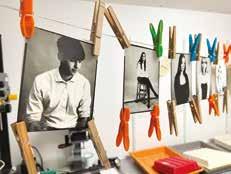
The Creative Arts make links with charities and local primary school partnerships. It can open the door for Sixth Formers to get involved in community projects or using projects for the Duke of Edinburgh Award skills section.
Clubs & Societies
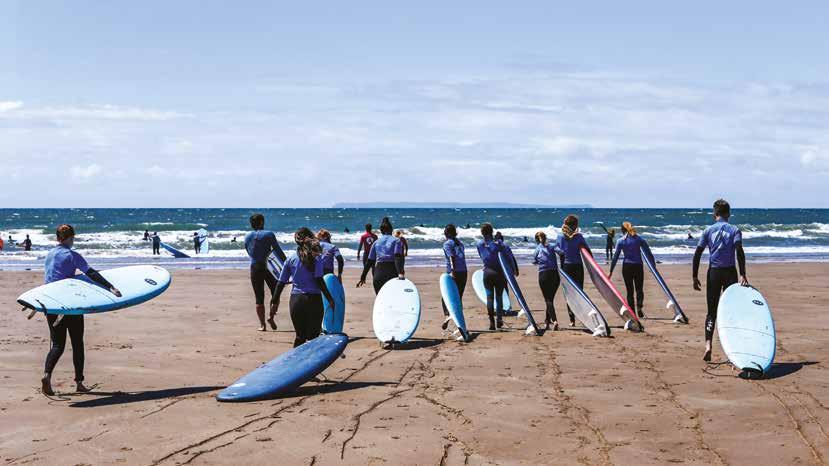
There is something to suit everyone in the clubs and societies offering at King Edward’s. Sixth Formers, particularly, take a leading role in running our engaging offering.
You can run clubs, choose guest speakers, give presentations, you name it!
The opportunities for leadership outside the classroom through clubs and societies are your chance to explore passions and talents whilst growing your skill set. If you want to try your hand at podcasting, now is your chance. Where a club does not yet exist, we will support you in setting one up.

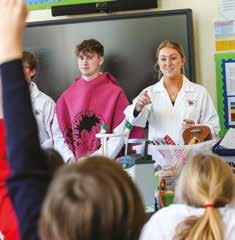
Exclusive to Sixth Form at King Edward’s:
• Biological and Anatomical Drawing Club
• Book Club
• Booker Prize Reading Challenge
• Charities Commission
• Chess Club
• Coundley Historical Society
• Cryptic Crossword Club
• Dance Club
• Economics Society
• Electronics Club
• Feminist Society
• Football Club
• French Debating
• French Film Club
• Geography Society
• Life Drawing
• Lunar Society
• Neurodiversity Society
• Problem Solving in Chemistry
• Senior Debating Society
• Spanish Film Club
Within the Sixth Form there will usually be around 100 students engaged in the Duke of Edinburgh Awards; some completing their Silver Award, and others making progress on their Gold Awards.
The Duke of Edinburgh Award programme is hugely valued at King Edward’s, and plays a big part in the co-curricular programme. We actively
encourage students to engage with the scheme, to stretch and challenge themselves in ways that help them develop personal qualities that will serve them so well in adult life.
School clubs and societies help participants achieve their Volunteering, Physical and Skills sections and we have a well-stocked, and free to loan equipment store, to support students. This means that with your own boots and clothing, we can equip you with the best quality outdoor gear, so that you are ready to get out there and achieve!
We have a full time Duke of Edinburgh Manager to facilitate students’ progress, and the school’s Rural Study Centre at Lovaton is often a support base for
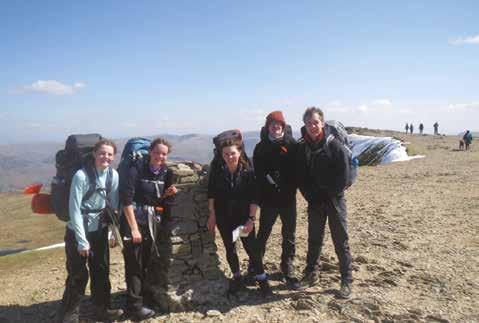
Silver expeditions on Dartmoor. Our Gold expeditions will venture further afield to the mountains and hills of Wales and the Lake District, all staffed in-house by our qualified and dedicated team.
If you are coming to King Edward’s already armed with a Silver Award, you can enrol straight away onto the Gold programme, otherwise the Silver Award is easily within your grasp during your Lower Sixth Year.
The Duke of Edinburgh Award is a pathway to leadership, teamwork, communication, independence, growth, confidence and achievement. It is also highly valued by universities and employers.
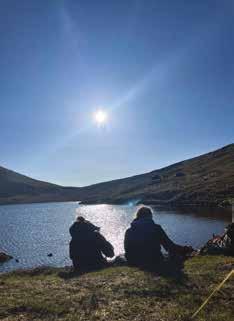
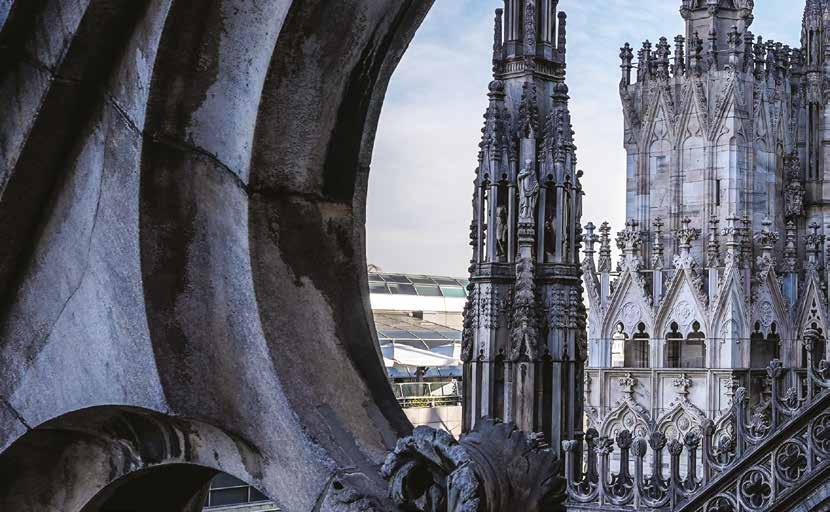
Every year our Sixth Form students get multiple opportunities to travel the globe, to learn outside of the classroom and enhance their understanding of chosen subjects and the world.
Language students have the opportunity to practise their language skills in France, Germany and Spain.
We’ve taken Creative Arts students on tours in Paris, Prague, Austria and New York.
Students studying any of the art subjects frequently visit museums, galleries and theatres internationally and locally,
from Greece to Brighton, London to Southampton!
In addition, there is a comprehensive Sports Tour programme. Recent tours include a visits to South Africa, India, Sri Lanka and Europe.
There are also expeditions on offer which have previously taken place in Tanzania and Vietnam. Biologists, and anyone interested, can join Operation Wallacea for two weeks of scientific research.
Previous locations have included Indonesia, Mexico, Honduras, Madagascar and the Galapagos. Biology and Geography students will have a few residential days of fieldwork in the Lower Sixth. Lastly, students taking part in the Duke of Edinburgh Award will take part in expedition, which is detailed on page 25.
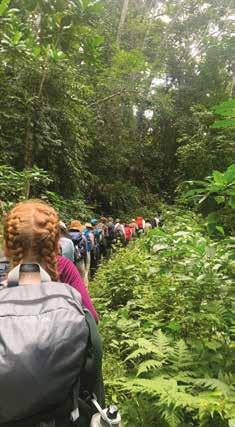

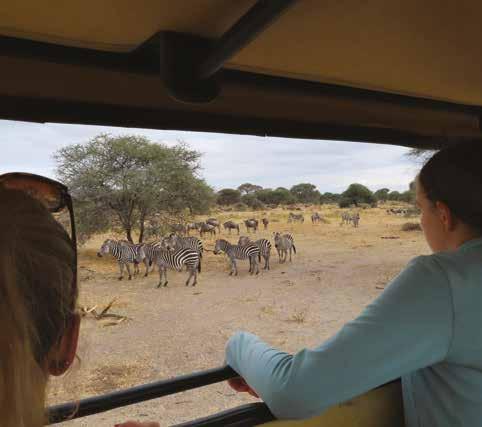
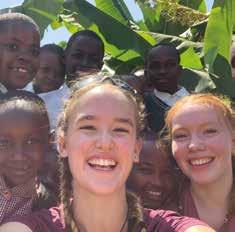
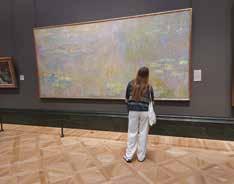
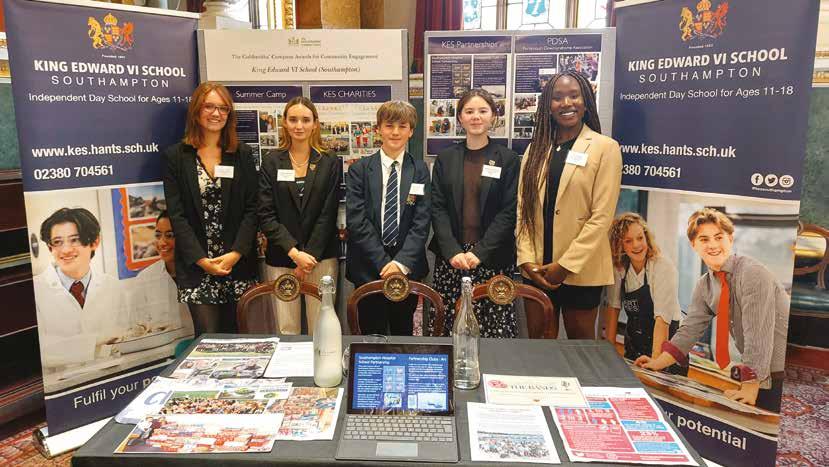
Our student-led Charities Commission is an integral part of School life, boasting a sizable and active membership.
Sixth Form members of the Commission are enthusiastic contributors to our community, utilising assemblies to educate peers on pertinent issues and campaigns deserving of school attention. Throughout the academic year, they organise a diverse array of events, consistently raising approximately £10,000 annually. This initiative is a cornerstone of school life, with the Sixth Form taking the lead.
Within the Sixth Form, there are three distinctive charity projects. We collaborate with the Portsmouth Down Syndrome Association (PDSA), dedicated to enhancing the lives of children and families affected by Down Syndrome. Our
students actively engage by organising activity sessions and participating in group outings. The Summer Camp initiative offers a residential experience for young carers, meticulously organised and operated by Sixth Form students. Partnerships opportunity Project (POP) delivers an array of activities and fund raising tailored to Kings Copse Primary school, a local school for visually impaired students.
Participation in these projects spans two years, requiring students to exercise creativity and devise effective fundraising strategies to support their endeavours. A commitment during school holidays is required; Summer Camp’s residential program and the Partnerships Project’s activities take place in July, while PDSA Activity Days occur at the end of August.
Our sixth form students are also encouraged to support our partnership events. These events take place throughout the year and offer local
primary schools the opportunity to experience a range of exciting learning activities.
Engagement in these initiatives not only forges lasting memories for Sixth Form students but also leaves a lasting impact on the children involved. These projects cultivate enduring friendships and impart invaluable life skills that extend far beyond the classroom.

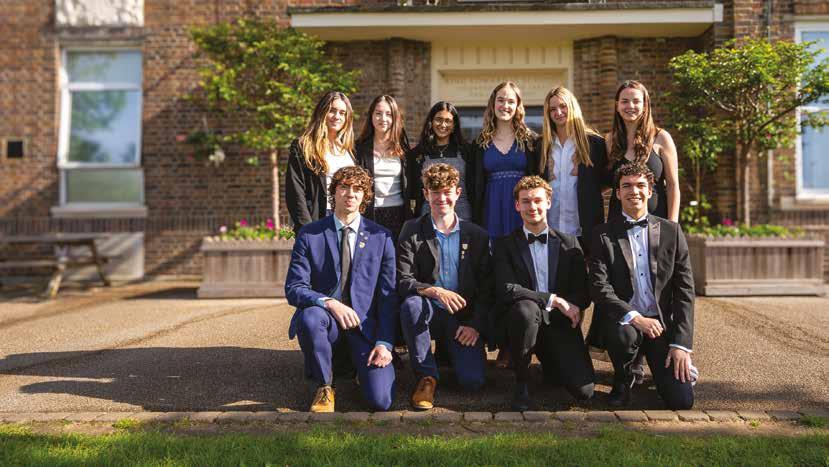
Throughout the Sixth Form, students have the chance to build and practise leadership skills. There are a range of formal and informal roles of responsibility for students to get involved with.
Leadership positions such as Head and Deputy Heads of School, Senior Prefects (known as ‘Prepositors’), Lower School Prefects, Wellbeing Prepositors, and Heads of Houses are open to all by application. Different roles have different responsibilities attached, and all students are encouraged to put themselves forward for those roles where they think they can build skills, add value and have some fun.
Some Prepositors will be attached to specific year groups in the school, working closely with staff to support and mentor young students as well as helping organise events such as parents’ evenings. Other Prepositors take a leadership position in a whole school area, such as Charities, Partnerships, Sustainability, or Creative Arts.
Lower School Prefects join in and lead tutor group activities for younger students and may accompany them on team building trips. House Captains take responsibility for galvanising the House, picking teams and encouraging participation in the best spirit.
All Sixth Formers in positions of responsibility get to work closely with teaching staff; including regular meetings with senior staff to provide a student voice in the school’s decisionmaking process.
Sixth Formers also take the lead in a host of activities, from heading up academic societies to helping run and organise
school events. Training days take place for those with formal leadership positions, and all students benefit from peer support training in the Lower Sixth.
An important part of the selection process for leadership roles is to what degree students take up opportunities to help the school community in their Lower Sixth year. For example, Lower Sixth students are invited to train as peer supporters and offer up their time to younger students in the Wellbeing Centre. Additionally, there are activities like the Charities Commission and a range of diversity societies such as FemSoc and Multicultural Society that help promote worthy causes and offer opportunities to deliver assemblies.

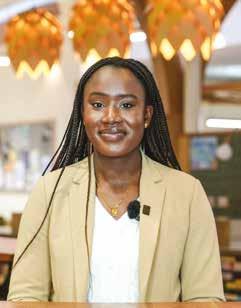
I would like to give back to the
and make the lives of others better Ese

I have come to enjoy Maths more and more during my time in
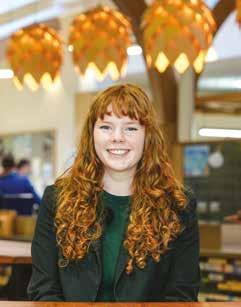
I loved the performance opportunities that I’ve had within the Music Department Freya
In 2023, 124 applications were made to university. Of these, 97 were made by current Upper Sixth students and 27 by Old Edwardians (KES Alumni).
In 2023, 9 students were accepted onto Medicine courses, 6 were accepted into Oxbridge and 2 onto Veterinary courses.
The below table highlights the most popular University destinations for King Edward's leavers (2023):
The following provides an overview of typical university destinations, courses and paths our students follow after Sixth Form.
58.2% of grades were awarded A* - A at A Level and 95.1% of the King Edward's Students achieved A* - C grade. A more detailed breakdown of A Level grades in 2023 can be found on page 33.
84 places at Russell Group Universities were offered to King Edward's students. 93 places at the 'Top 25' (i.e. Russell Group, Bath, Medical Schools) were offered to Sixth Form leavers in 2023.
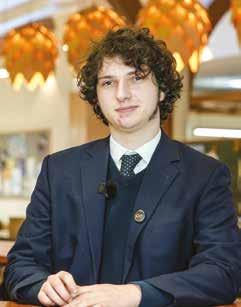

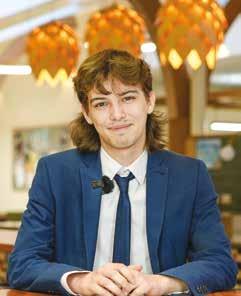

You'll have an experienced team dedicated to supporting you during your time with us.
A flexible work experience programme is available to all students, providing an insight into an array of possible careers; subject specific and career specific Careers Conferences are advertised regularly; Sixth Form Careers lunches provide students with the opportunity to meet people in different occupations (medicine, law, IT, engineering, science, finance, media, etc) and begin networking. Whilst the Foundation Studies programme of short courses offers insight into different aspects of preparation for life after King Edward’s such as presentation skills and basic budgeting.
The annual HE Fair provides students with the chance to meet representatives from most of the top 25 UK universities. Representatives are available for information on choosing the right higher education for you.
The Careers Fair welcomes an extensive list of representatives from a variety of industries, careers, and professions to King Edward’s. Students have the chance to meet the experts and to learn more about opportunity, to find out more about career areas they know about but also to discover others that they may never have considered.
In the Summer Term, University Open Day visits are arranged. Students considering Higher Education are strongly urged to view potential institutions.
Towards the end of the academic year the Lower Sixth are introduced to the central UK university applications programme, UCAS APPLY and are encouraged to research various courses or other options that appeal to them. Students are also able to attend Personal Statement workshops to gain a better understanding of how to write the best personal statement of their own and advice is given to all members of the Lower Sixth on the whole application process. Throughout the year students are also introduced to other possible HE routes other than attending a UK university - such as studying abroad
or doing a Higher or Degree level apprenticeship. There are also dedicated staff members to assist students with their university applications.
Informal careers advice continues to be given throughout the Upper Sixth Year as students progress through the university application process. All Lower Sixth students have a careers interview with a member of staff.
During the Summer holidays, a Post Results Clinic is available to offer advice to those candidates on receipt of their A Level results.
We are lucky to welcome various industry experts to our Sixth Form each term, where students get to learn more about careers across various fields they may be interested in after their time at King Edward's. These sessions give students the opportunity to ask questions and gain an insight to the day-to-day of a particular profession. Previous sessions have included professionals joining us from Medical, Allied Health, and Law as well as Business, Finance and Economics, and Engineering, with other sessions tailored to the needs and interests of particular.
To
All students study a full-time course of three A Levels. Those wishing to study Further Mathematics will take four A Levels, and many students will choose to additionally complete the EPQ (Extended Project Qualification).
Very few university courses require four subjects, although students taking Further Mathematics, which is recommended for the most competitive How do I choose my subjects for the Sixth Form?
You will be studying a much narrower range of subjects than in the past and spending more time on each of them, so it certainly makes sense to choose subjects you know you enjoy! Equally, your results in these subjects will be your passport to Higher Education, so they should also be subjects in which you can reasonably expect to achieve good results. A combination of subjects offering a degree of variety of study is often a good idea.
If you have clear future intentions for university and beyond, check if you should take certain subjects at A Level. If you are not sure what you want to do beyond the Sixth Form, it’s best to choose a range of subjects that keep your options open. Take advice as widely as possible and visit the HE and careers office to talk to our dedicated HE staff.
Which subjects are the best preparation for university later on?
We believe that all subjects offered at A Level have good academic credentials and are suitable for study by Sixth
Mathematics and Engineering courses, will need to continue all four to allow for sufficient breadth.
The Sixth Form at King Edward’s aims to deliver consistently excellent results in a wide range of subjects. A favourable teacher to student ratio allows us to focus on the individual and promotes class discussion. Positive relationships with teachers are a feature of the Sixth
Form experience, making it an important stepping stone to the world of university and work.
A number of subjects are available at A Level that may not have been for students at GCSE. Students should not be discouraged to opt for ‘new’ subjects, but careful advice should be taken if considering more than two subjects not previously studied.
Formers intending to enter Higher Education. Some HE courses have specific subject requirements, very many do not. Students who are concerned whether their A Level subjects are appropriate preparation for their intended course of study at university should consult the websites of the universities concerned or look at the entry profiles for courses featured on UCAS Course Search. The HE and careers department can also offer guidance and advice.
Will I have the same teachers in both years in the Sixth Form?
Continuity of teaching cannot be guaranteed, but we will do our best to provide continuity for as many sets and students as possible.
Will subjects be examined in both the Lower and Upper Sixth?
Yes. All subjects will be examined in the Summer Term of the Lower Sixth year internally. In December of the Upper Sixth year, mock examinations are arranged by subject departments. A Level subjects will be externally examined in May and June of the Upper Sixth.
is
In Lower Sixth, every student will enter the Foundation Studies programme and attend a series of weekly sessions designed to equip students with key skills and to extend their education beyond the examined curriculum. In Upper Sixth, the programme evolves into a series of five short courses chosen from a wideranging list. Full details of these will be made available in the Summer Term of the Lower Sixth year. In addition, all Sixth Form students will attend Open Forum, a series of weekly talks by staff and guest speakers, intended to interest, inspire and broaden the experience of all students. Please see page 18 for more information.
Any questions you might have which are not answered above should be addressed to:
Dr BM Waymark
Deputy Head (Academic) 023 8070 4561
bmw@kes.hants.sch.uk
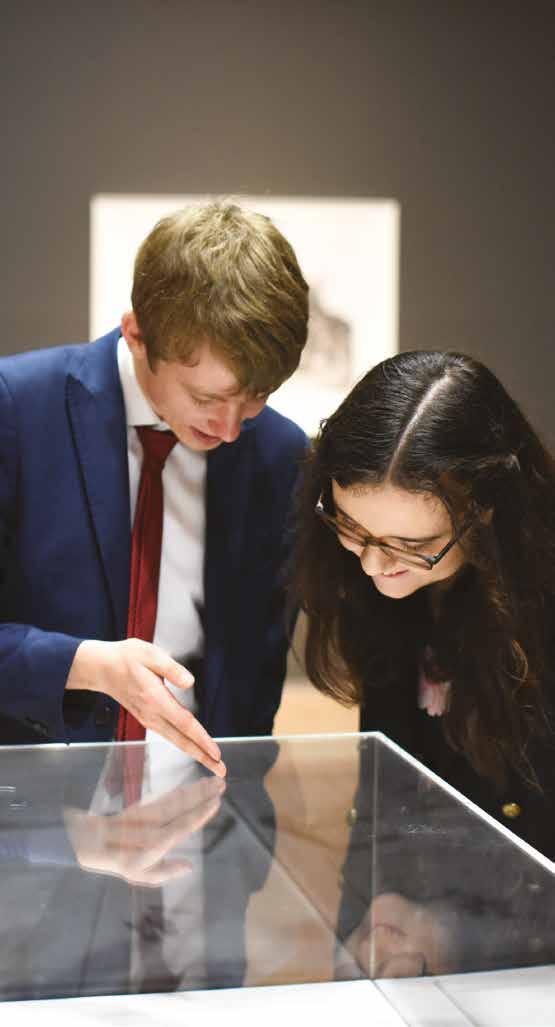

The AQA Fine Art course at King Edward’s offers a step up from GCSE into a world where you will experiment and try new ways of working, hopefully to broaden your approach to the subject. This might be through our life drawing classes or simply working on a scale never attempted before.
The Lower Sixth course is experimental in design and leads to a more specialised approach at full A Level. Flair is vital as is a willingness to try new things and a broad-minded approach to the creative process.
Grade 6 in Art if studied at GCSE.
• Drawing
• Painting
• Printmaking
• Photography
• Practical investigation
Methods of Assessment
• Personal Investigation: 60%
• Externally-set Assignment: 40%
Find out more about the course at kes.school
Head of Department: Mr
G Piggott glp@kes.hants.sch.uk
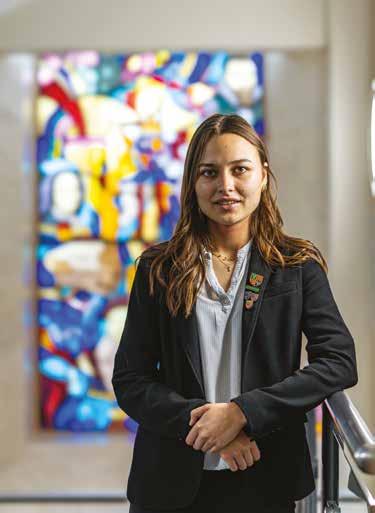
Having been at KES since Year 7, it has really shaped who I am as a person. I feel like it has been the perfect school for me and Sixth Form was no different. If I’m honest, I had a slight worry that as I transitioned to Sixth Form that it wouldn’t be different enough to the main school, however this was not the case. The Sixth Form is a completely new experience and I feel that it has set me up extremely well for my future. It is great mixing with new people that join and being part of a different dynamic.
Overall, I have thoroughly enjoyed my KES Sixth Form experience and the balance between A Levels and cocurriculars. I am on track to do well in Art, Geography and Business and I really enjoy these A-Levels
My highlights during Sixth Form:
• Opportunities: KES has given me such a variety of opportunities over the last 7 years across sports, art and charities and has stayed present throughout Sixth Form.
• Relationships: I have made some really special relationships with my teachers and friends. My teachers are always willing to go out of their way to support me with my studies.
• The Concourse: I love this space!
My plans after KES:
I plan to take a gap year where some of this will be spent working as a gap student within the KES Sports Department. I would like to be coaching for the Hockey and Rugby season and this will be followed by a Ski season in France or Switzerland. I am also interested in coming back for some time during the Cricket term. Then I plan to go travelling in summer also. After this, I am going to study Marketing with a year in industry. I have received deferred places from Loughborough, Liverpool, York and Exeter so far and I am really excited for what is to come.
I joined KES in Year 7.
A Levels Studied at KES: Art | Geography | Business
Clubs & Societies: House Captain, Geography Society, Hockey, Netball and Cricket club/teams, DofE Gold, PDSA charity team.
My message to students looking to join the Sixth Form: Do it! I have genuinely loved my time at KES and I feel like it has something to suit everyone. Whether it is the sport, music, art or academics alone that you’ll benefit from. I would say don’t be worried about joining a school that has a secondary school. You are treated differently by your teachers as a sixth former and I wouldn’t be concerned about merging with a year group that have previously been at school together. I think the transition can be pretty seamless. Finally, I strongly believe that KES has a Sixth Form that is perfect for all round opportunities and experiences, giving you the best chance of being an all rounded person.

The AQA Photography course will look at the social, cultural and artistic context of Photography. We have an extensive art and design library with over 3,500 titles. The department has its own IT suite running Adobe Creative Studio as well as an A1 printer and dedicated film scanner. There are also DSLR cameras and a wide range of film cameras including a 5x4 plate camera and dark room.
Grade 6 in Art, Photography, Textiles, Graphic Design or DT if studied at GCSE.
• History of photography
• Contextual studies
• Creative application of camera skills
• Framing and composition
• Creating a narrative
• Understanding genres
• Personal Investigation
• Writing about images
• Using a darkroom: processing and printing
• Use of Adobe Creative Suite
Lower Sixth:
• Experimental Project Upper Sixth:
• Personal Investigation: 60%
• Externally-set Assignment: 40%
Find out more about the course at kes.school
Head of Department: Mr G Piggott
glp@kes.hants.sch.uk
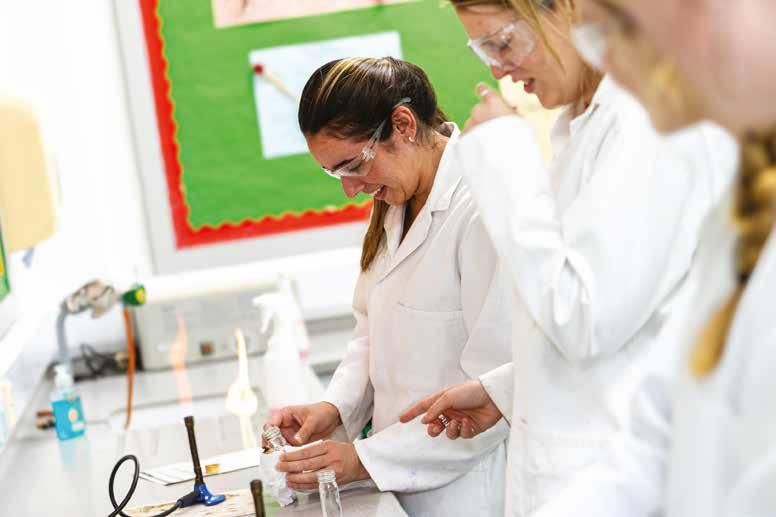
This is a course that has been kept upto-date, dealing with topics in ways that are easily seen as relevant to everyday life. We teach Edexcel Biology A, which maintains the best of the Salters Nuffield approach. The course aims to: use topical contexts, be accessible yet intellectually demanding, emphasise application of knowledge, integrate activities and practical work throughout the course; make full use of a range of teaching and communication approaches and use student-centred, novel activities that show how biologists think and work in their professional lives.
Practical work is fully integrated into the units, with the use of living materials as a central focus of the activities. It includes practical study of a variety of living organisms, including humans and other
animals, plants and micro-organisms, as well as a 3-day field trip to Leeson House in Swanage for ecology work.
Grade 7 in Biology, or 7/7 in dual award Science.
• Lifestyle, health and risk
• Genes and health
• Voice of the Genome
• Biodiversity and Natural Resources
• On the ‘wild side’
• Immunity, infection and forensics
• ‘Run for your Life’
• Grey Matter
• Paper 1: ‘The Natural Environment and Species in Survival’
• Paper 2: ‘Energy, Exercise and Coordination’
• Paper 3: ‘General and Practical Applications in Biology’
Find out more about the course at kes.school
Head of Department: Dr NC Wortham ncw@kes.hants.sch.uk

The provision of this course should enable you to develop a critical understanding of the internal workings of a business, and of its role in the economy and broader external environment. You will become aware of the effects of business behaviour from a range of perspectives and a variety of organisations.
During the A Level course you will be introduced to a number of business theories and models, and you will be expected to apply them to real world examples and case studies. You will require a range of skills including decision making and problem solving and where appropriate, the quantification and management of information.
Grade 6 in Business if studied at GCSE.
• What is Business?
• Managers, leadership & decision-making
• Marketing management
• Operational management
• Financial management
• Human resource management
• Analysing the strategic position of business
• Choosing strategic direction
• Strategic methods: how to pursue strategies
• Managing strategic change
• Paper 1: Multiple-choice questions, short answer-questions and two essays from a choice of four titles
• Paper 2: Data response questions
• Paper 3: Questions based on a business case study
Find out more about the course at kes.school
Subject Co-Ordinator: Mr M Laverty mol@kes.hants.sch.uk
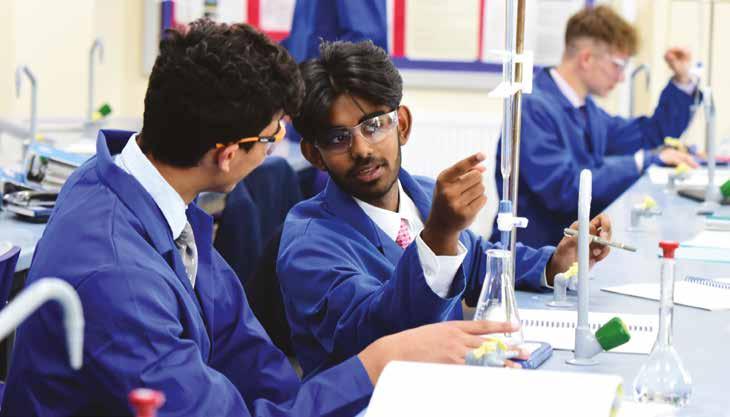
A Level Chemistry gives you the opportunity to develop your appreciation of the topics that you were taught at GCSE level and a chance to find out about new themes and ideas that may have significant impact on society today. Like all A Level subjects, the two-year course will be demanding and rigorous, but this should allow you to develop a genuine in-depth understanding of this fascinating science.
The specification at King Edward’s is neatly organised into topics with core practicals embedded into the teaching. These practicals will cover a variety of experimental techniques and should allow you to gain confidence in your ability to manipulate apparatus and handle hazardous substances. We have five specific Chemistry laboratories that allow us to complete a significant number of practicals during the two-year course.
Grade 7 in Chemistry, or 7/7 in dual award Science.
• Atomic Structure
• Amount of Substance
• Bonding
• Redox
• Energetics
• Organic Chemistry
• Transition Metals
• Equilibrium
• Kinetics
• Analytical Techniques
• Paper 1: ‘Advanced Inorganic and Physical Chemistry’ (30%)
• Paper 2: ‘Advanced Organic and Physical Chemistry’ (30%)
• Paper 3: ‘General and Practical Principles in Chemistry’ (40%)
• Science Practical Endorsement: These are a selection of experiments chosen by the exam board that you need to be confident in from a theoretical and practical point of view. They are internally assessed and externally moderated. Many universities request a ‘pass’ in the practical endorsement as part of their offer.
Find out more about the course at kes.school
Head of Department: Mrs LA
Millingtonlam@kes.hants.sch.uk

Classical Civilisation offers students the opportunity to study the archaeology, architecture, art, history, literature, philosophy, politics, social history and religion of the Classical World, and to develop their understanding of their social, historical and cultural contexts.
Grade 6 in a Humanities subject.
• World of the Hero: you will read Homer’s Iliad and Virgil’s Aeneid, studying the literary techniques, heroic themes and the social, cultural and religious context of the poems.
• Greek Religion: using prescribed literary and visual/material sources, you will study the Greek gods, the personal experience of the divine, religion in society, places of worship, rituals and priests, philosophical beliefs.
• Imperial Image: using prescribed literary and visual/material sources, you will study Augustus and his propaganda regime from his association with Julius Caesar, his leadership, his elevation to Emperor, his culture changes, and his position as pater patriae.
• Paper 1: ‘The World of the Hero’ (40%)
• Paper 2: ‘The Imperial Image’ (30%)
• Paper 3: ‘Greek Religion’ (30%)
Find out more about the course at kes.school
Head
of Department: Miss IM Painterimp@kes.hants.sch.uk

The OCR Computer Science A Level qualification empowers students to build understanding of core computer science principles. Computational thinking and programming skills learned in the classroom are transferred into creating real-world systems, giving students experience of developing a fully realised solution. Through our A Level course students will develop their analytical skills relevant to problem solving across all industries.
In the Lower Sixth, students will be introduced to the fundamental technical principles of computing, computational thinking and problem solving as well as studying data exchange, software development, data types, and legal and ethical issues. In the Upper Sixth, students will build their skills by applying computational thinking and problemsolving to a practical problem of their choosing.
Grade 6 in Computer Science if studied at GCSE.
• Components of a Computer
• Systems Software
• Software development
• Exchanging data
• Networks and web technologies
• Data types
• Data structures
• Boolean Algebra
• Legal, moral and ethical cultural issues
• Computational thinking
• Programming techniques
• Algorithms
• Paper 1: ‘Computing Systems’ (40%)
• Paper 2: ‘Algorithms and Programming’ (40%)
• Programming Project: Internally assessed, externally moderated (20%)
Find out more about the course at kes.school
Head of Department: Mr
DG Cutler dgc@kes.hants.sch.uk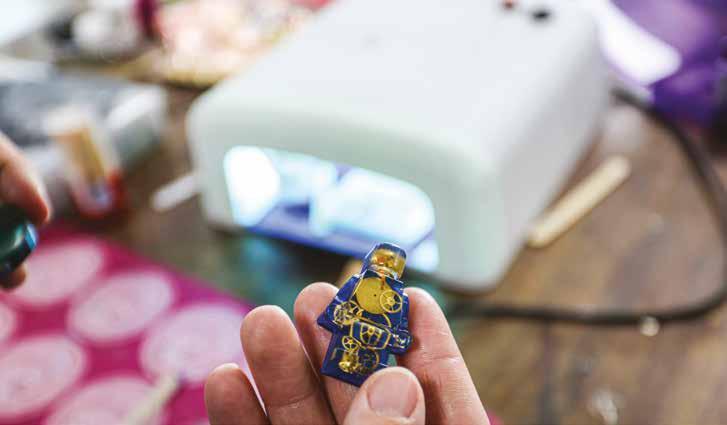
Students will study the OCR Design and Technology Product Design course, this strengthens learners’ critical thinking and problem-solving skills within a creative environment, enabling them to develop and make prototypes/products that solve real-world problems. This qualification aims to excite and engage learners with contemporary topics covering the breadth of this evolving subject.
The Design and Technology department at King Edward’s is a well-resourced centre which compromises; two multimaterial workshops, a dedicated textiles room, an ICT suite and materials preparation rooms. The department is well-equipped with a variety of materials, hand and CNC machinery and processes available. There is full technical support from the department technician.
Grade 6 in Design & Technology if studied at GCSE.
• Identifying requirements
• Learning from existing products
• Wider issues
• Design thinking
• Materials and components
• Technical understanding
• Manufacturing processes
• Viability of design solutions
• Health and Safety
• Non-Examined Assessment (coursework) (50%)
• 2 final written papers (50%)
Find out more about the course at kes.school
Head of Department: Mrs AML Blow
amlb@kes.hants.sch.uk
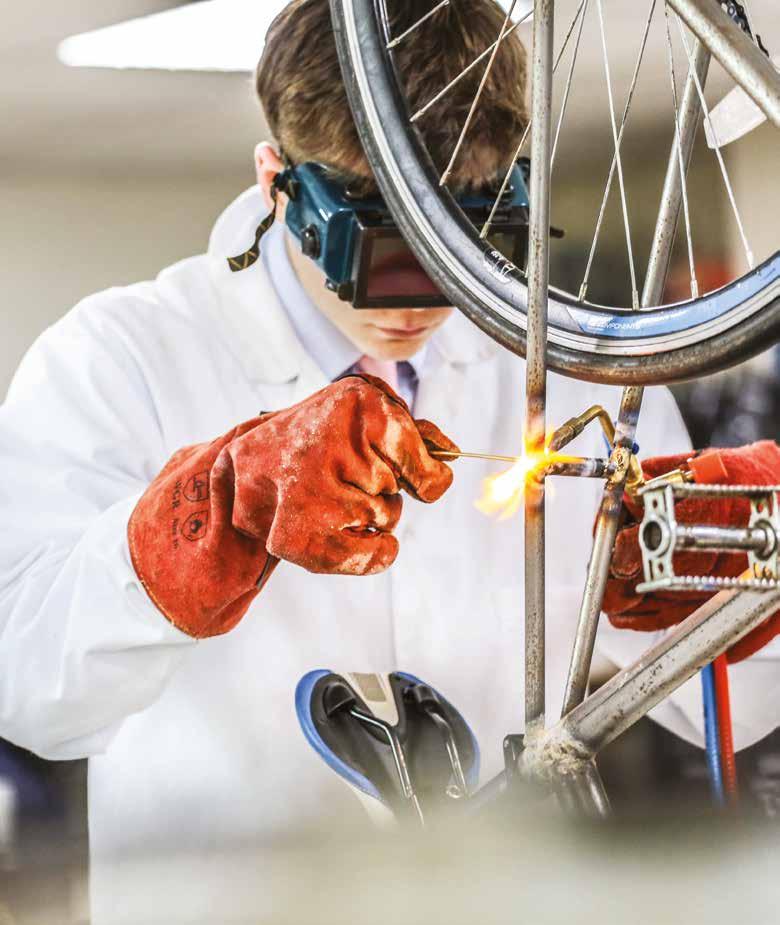
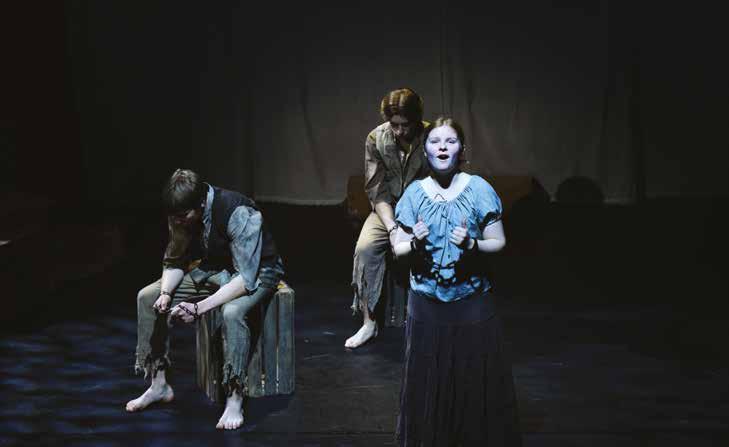
Drama and Theatre Studies is a vibrant, creative, challenging and stimulating course. It allows students to develop theatrical skills that will allow them to perform on stage and create innovative relevant contemporary theatre from a directional and design perspective. Students will also hone important life skills such as negotiation, cooperation and time management and improve their abilities in public speaking; presenting information in varied and engaging ways and commanding the attention of an audience.
There will be compulsory theatre trips throughout the course. There will also be extra workshops organised to connect students with contemporary theatre practitioners and professionals.
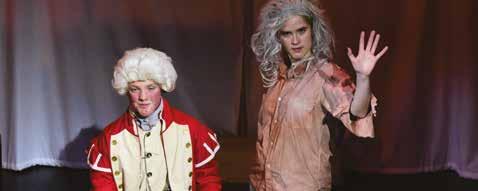
Grade 6 in Drama if studied at GCSE.
• Component 1: ‘Drama and Theatre’ (40%)
• Component 2: ‘Creating Original Drama’ (30%)
• Component 3: ‘Making Theatre’ (30%)
Find out more about the course at kes.school
Head of Department: Mrs LA Gilmour
lag@kes.hants.sch.uk
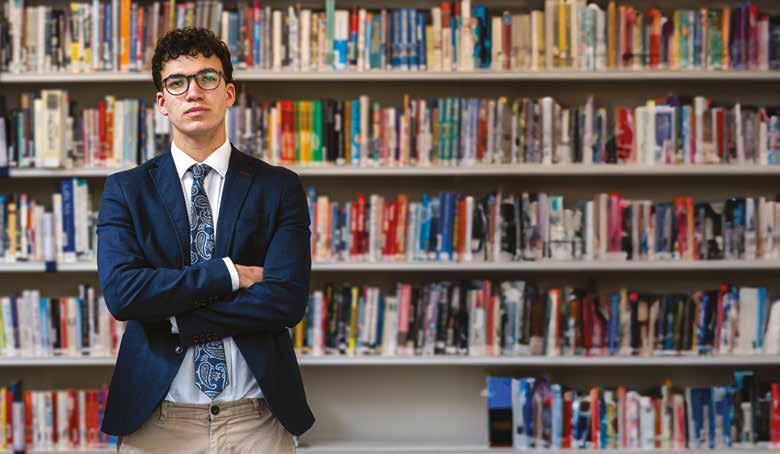
I joined KES in Sixth Form.
A Levels Studied at KES:
Clubs & Societies: The Badgers (School Band), Rugby Club, Acting Rehearsals, Musical Theatre Rehearsals, Coundley Historical Society.
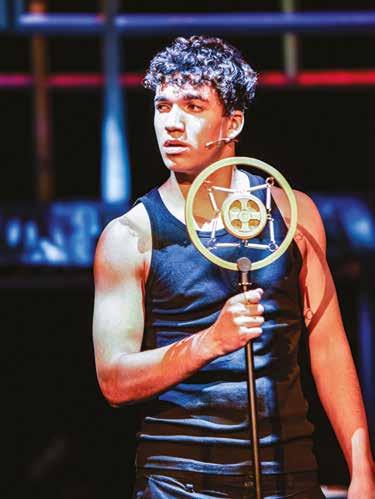
My time at KES Sixth Form has been brilliant. Looking back I joined the school as a slightly reserved individual in a brand new environment but over a short period of time I found my feet and opened up. I take Drama, Psychology and History, a diverse range of subjects that I find equally fascinating. The teachers are enthusiastic and good fun supporting us each as individuals, not simply as a group of students. Although I’ve chosen to take a different career path to many of my peers, the teachers are always there willing to support me. The activities outside of academics such as Foundation Studies, Open Forum, clubs and societies are hugely beneficial in broadening our interests and knowledge.
My highlights during Sixth Form:
• Performing in the Sixth Form play ‘Our Country’s Good’
• Battle of the Bands (2023/2024)
• The Sixth Form collaboration with ‘Portsmouth Down Syndrome Association’
My plans after KES:
I’ve been auditioning to attend drama school this year, gaining places on competitive courses with the support from the Creative Arts Department at KES.
So far I’ve received offers from:
• ArtsEd
• Royal Welsh College of Music and Drama
• Trinity Laban
• Emil Dale Academy
• Guildford School of Acting
For my future career I aim to become a professional actor, performing on West End stages. My goal is to perform in professional films and essentially make a name for myself in the performing arts industry.
My message to students looking to join the Sixth Form:
The KES Sixth Form is welcoming and enthusiastic. Joining KES in Year 12 might be daunting but it truly is a wonderful place to be! The teachers and Sixth Form staff will support you in whatever path you choose to take. Although KES pushes you to pursue academic excellence, don’t therefore shy away from the fantastic co-curricular opportunities King Edward’s has on offer. My advice is to open as many doors as possible, experiment to give yourself options, don’t let failure or misfortune stunt your growth and most importantly enjoy yourself.
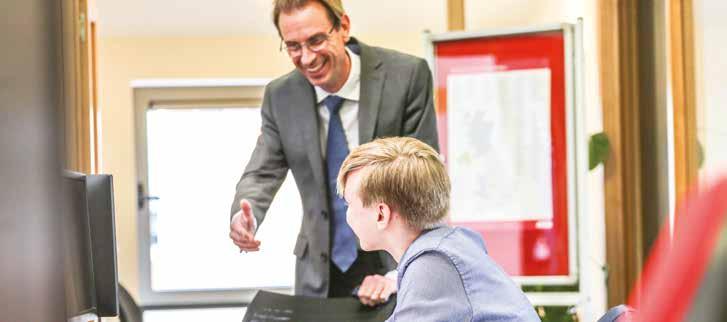
Economics is a contemporary, thought provoking and evolving subject that considers various aspects of human behaviour. This course concentrates on how we behave when faced with the economic problem that the world has too few resources to produce enough goods and services to satisfy all its people. Given this microeconomic problem, choices must be made about what, how and for whom to produce goods and services.
Economists study how people, businesses and governments make choices and the consequences of their decisions. The macroeconomic side of the course considers the national and international economy, government economic policies and the trade-offs that exist between inflation, economic growth, unemployment, trade & inequality.
Grade 6 in Economics, Business, or a Humanities subject if studied at GCSE.
• Economic methodology and the economic problem
• Individual economic decision-making
• Price determination in a competitive market
• Production, costs & revenue
• Perfect competition, imperfectly competitive markets & monopoly
• The labour market
• The distribution of income & wealth: poverty & inequality
• The market mechanism, market failure & government intervention in markets
Macroeconomics
• The measure of macroeconomic performance
• How the macroeconomy worksaggregate demand & supply analysis
• Economic performance
• Financial markets and monetary policy
• Fiscal policy and supply-side policy
• The international economy
Lower Sixth:
• A mixture of written work throughout the course and end of year assessment which will examine the material covered to date and the assessment skills for A level.
Upper Sixth:
• 3 final written papers (33% each)
Find out more about the course at kes.school
Head of Department: Mr P Sheppard ps@kes.hants.sch.uk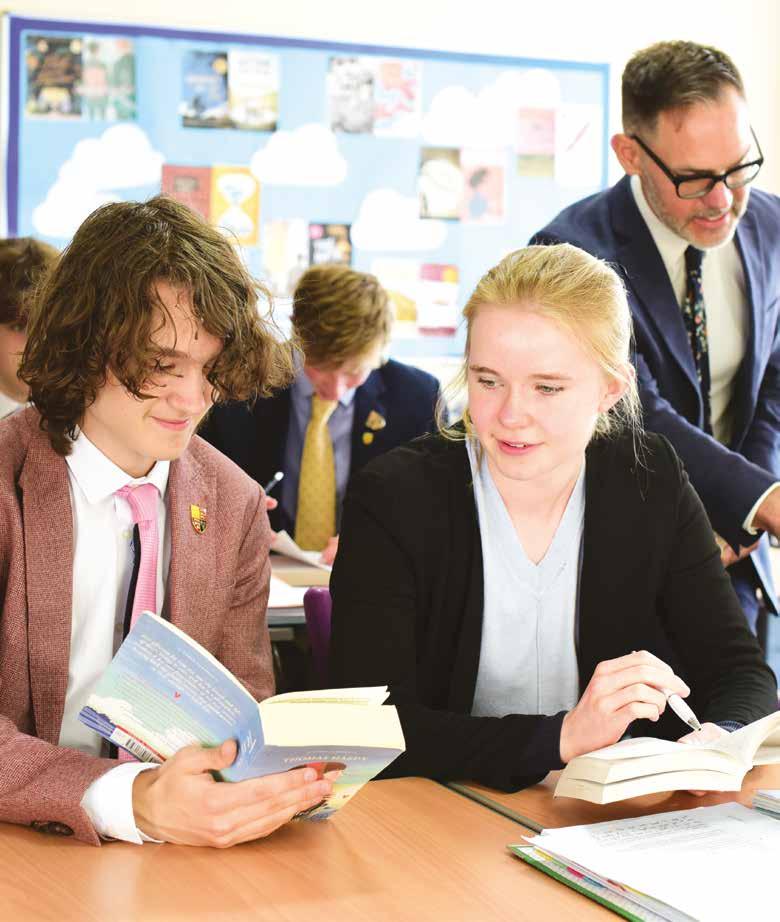
As a subject, English Language offers an opportunity to develop a detailed analytical understanding of the way language works, the way it is used and in which it is closely intertwined with social values.
This course will enable you to develop a range of skills essential for further education and employment. Studying English Language will help you to acquire a greater technical understanding of how languages work. You will also explore the relationship between language and the development of ideas, beliefs and attitudes; society and social interaction; and the construction of identity.
Critical awareness of language not only helps you understand how to express
yourself, but also how others use language and for what purposes. You will become a more active and discerning reader and listener, as well as a more skilled, confident writer.
Grade 6 in English Language.
• Textual Variations and Representations
• Language Diversity - gender, accents and dialects, occupation, social groups
• Language Change and Global English
• Child Language Development
• Paper 1: ‘Language, the Individual & Society’
• Paper 2: ‘Language Diversity & Change’
• Coursework: ‘Language in Action’
Find out more about the course at kes.school
Head of Department: Mrs HK Arnold hka@kes.hants.sch.uk
A thorough grounding in literature automatically provides knowledge of our literary heritage while at the same time increasing the student’s awareness of cultural values. history, sociology, psychology, and almost every branch of human knowledge.
Literary study expands our capacity to sympathise with other human beings, enhances our ability to see and imagine human complexity, and broadens our intellectual horizons by enlarging our power to experience life vicariously.
Studying English Literature at A Level allows students to explore texts in more depth than at GCSE. You will be with
like-minded students, people who have chosen to do the subject because they enjoy it, which makes the level of debate more intense.
Grade 6 in English Literature.
• Tragedy: typical texts King Lear, Death of a Salesman, Tess of the D’Urbervilles
• Crime: typical texts Atonement, Rime of the Ancient Mariner, Brighton Rock
• Coursework: one essay on prose, one on poetry. There is some free choice here.
• Paper 1: ‘Literary Genres’ (40%)
• Paper 2: ‘Texts & Genres’ (40%)
• Paper 3: ‘Theory & Independence’ (20%)
Find out more about the course at kes.school
Head of Department: Dr AJ Schofield ajs@kes.hants.sch.uk
I joined KES in Year 7.
A Levels Studied at KES: English Literature | History | Psychology
Clubs & Societies: Debating Society, Coundley Historical Society, FemSoc
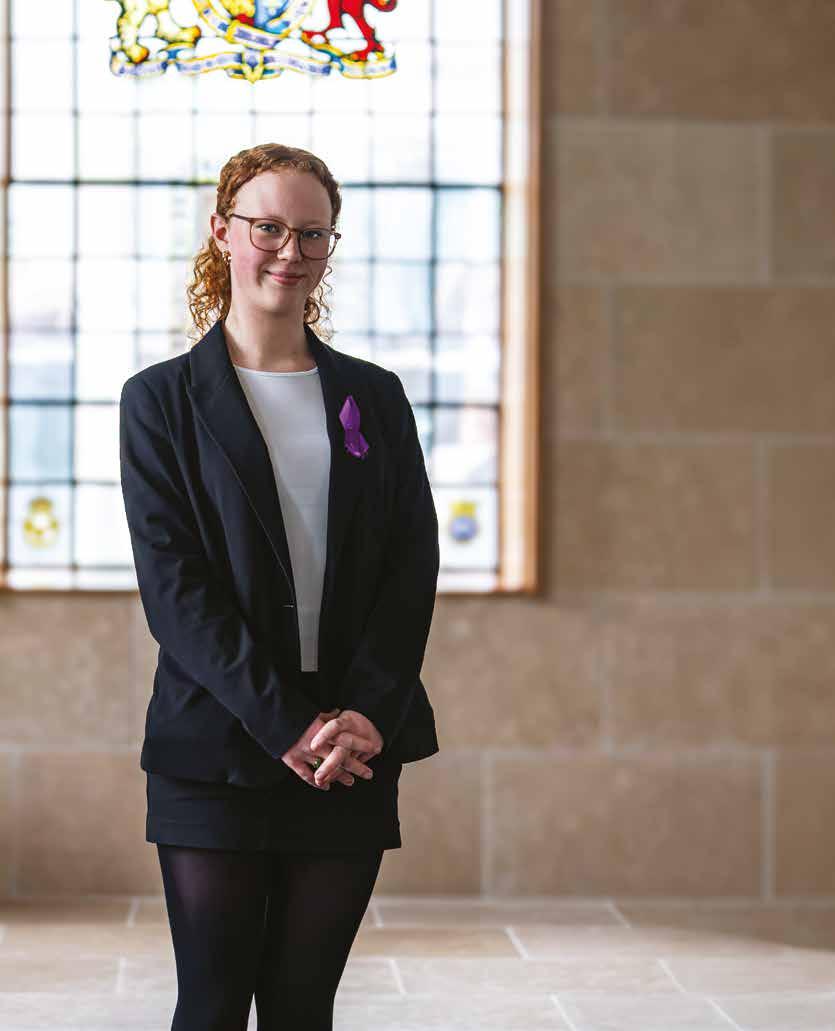
I have enjoyed my experience so far at KES Sixth Form and I think one of the factors that helped this was the transition from Year 11 to Sixth Form being so easy. The school made sure that the workload was not overwhelming so that we had time to settle into the Sixth Form, and the concourse really helped with the transition as it allows you to feel separate from the rest of the school- providing an area that lets you socialise without other year groups. Another reason I am enjoying my time in the Sixth Form is the smaller class sizes you are given.
My biggest class is eight people and my smallest is three which makes group discussion easier and more friendly and it means that the support you receive from your teachers is more personalised, as well as there being a lot more of it. You also are allocated free periods in sixth form which I find really helpful as they give me an opportunity to catch up on work, as well as feeling like I have more control over how and when I conduct my out of class work. The final thing I really like about the KES Sixth Form is the amount of cocurricular opportunities you are presented with.
I attend multiple clubs and societies a week, some are specific to my subject (like history society) and some are more general areas that I am interested in (like feminist society). I also help out with primary school partnerships and I am part of PDSA (Portsmouth Down Syndrome Association). All of these clubs have been great opportunities for me to expand my knowledge in different areas and get to try new experiences and meet new people that I otherwise would not have had an opportunity to meet.
My highlights during Sixth Form:
• The Concourse
• Smaller classes
• Free periods
My plans after KES:
In the future I am looking to either study English Literature at university, or to take a Degree Apprenticeship in law or journalism.
My message to students looking to join the Sixth Form:
KES Sixth Form is a great place to come for A Levels as you are given both more support for your studies than you are in secondary school and more freedom during the day- with free periods. Sixth Form also has many great extra cocurricular activities that allow you to meet new people and expand your knowledge in different areas which is a great opportunity.
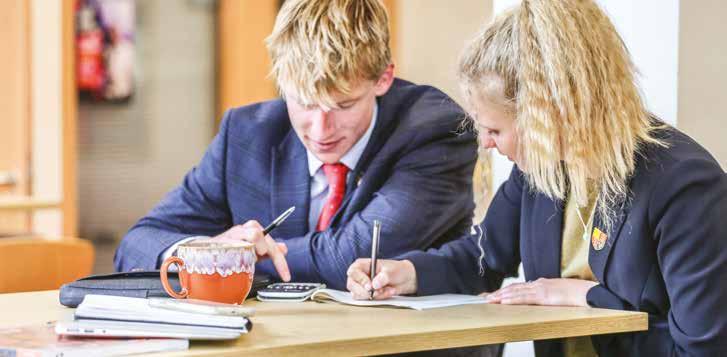
In addition to the core A Level subjects, students are encouraged to undertake the Extended Project. The EPQ offers an opportunity to explore in depth an area of academic interest resulting in a qualification equivalent to half an A Level, graded up to A*. Depending on the grade achieved, the EPQ is worth up to 28 UCAS points.
The EPQ usually takes the form of a dissertation, but it is also possible to base it around a performance, work of art, experiment or field study. There are few restrictions on the subject matter, and the choice is down to the individual student in consultation with their supervisor.
Students should have the ability to work independently, meet deadlines and have a high level of personal interest in the chosen field of research.
Lower Sixth: reading, research and academic referencing are taught as part of Foundation Studies. Students formulate a research question on a specific topic which is then submitted for approval prior to the Easter Holidays and supervisors will be allocated in the Summer Term. Students are expected to complete a significant amount of research before the end of the academic year.
Upper Sixth: Upon their return in September, students will be expected to have drafted their literature review and discussion. Further deadlines will be set by their supervisors during the Autumn Term and students will have allocated supervised study time to work towards these. The written element of the project will be completed by the end of January with a presentation evening in February.
The work is marked internally and moderated externally by Edexcel, the awarding body. Upon completion of the project all students also deliver a short presentation; forming part of the final assessment.
Find out more about the course at kes.school
EPQ Co-Ordinator: Mrs S
Burtsb@kes.hants.sch.uk
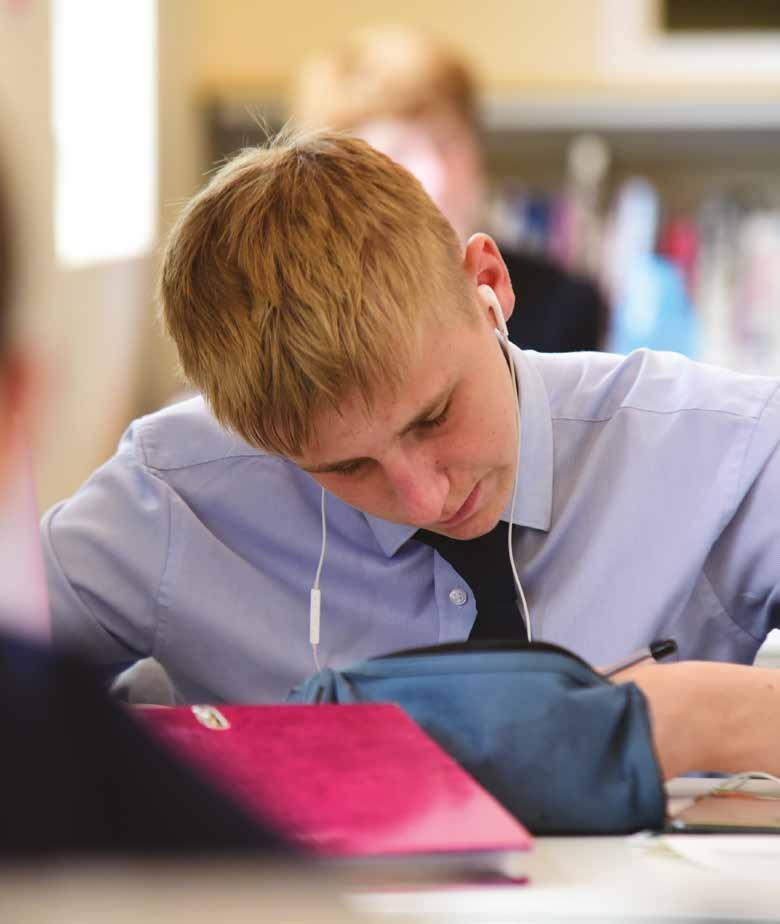
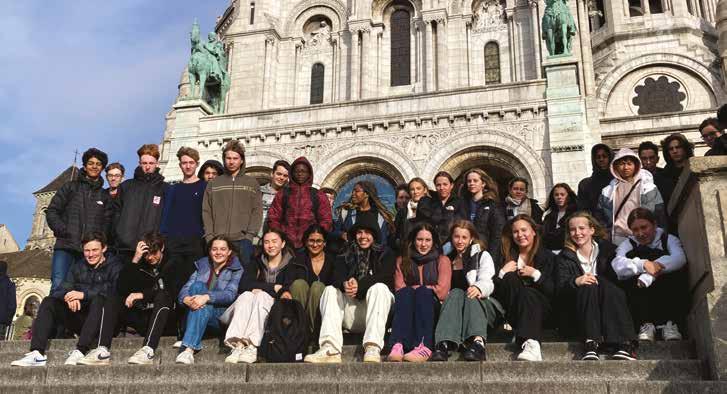
French adds to the overall profile of a student and improves a student’s chances of getting into a good university and later into an interesting career. The size of the classes allows for considerable individual attention and a great deal of lively interaction. Each class has a team of teachers, and students have a 25-minute lesson with our French assistant each week. There are numerous opportunities available to develop linguistic skills, be it in lunchtime workshops, borrowing a French DVD or book, or by taking part in the Sixth Form trip to France.
Grade 7 in French.
Lower Sixth
• The changing nature of family
• The ‘cyber-society’
• The place of voluntary work
• A culture proud of its heritage
• Contemporary francophone music
• Cinema: the 7th art form
• One film – from a choice of Les 400 Coups, La Haine or Au revoir les enfants
Upper Sixth
• Positive features of a diverse society
• Life for the marginalised
• How criminals are treated
• Teenagers, the right to vote and political commitment
• Demonstrations, strikes – who holds the power?
• Politics and immigration
• One literary text – from a choice of No et moi (Delphine de Vigan) or Boule de Suif et autres contes de la guerre (Guy de Maupassant)
• Paper 1: Listening, Reading & Writing
• Paper 2: Writing
• Paper 3: Speaking
Find out more about the course at kes.school
Head of Department: Ms KM Clement kmc@kes.hants.sch.uk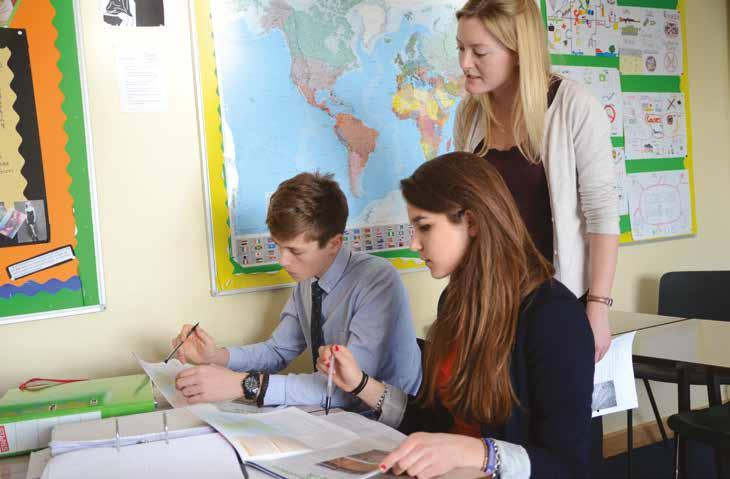
A Level Geography provides a contemporary and dynamic opportunity for students to engage with the world around them. The aim is to inspire a love of Geography for lifelong learning, drawing on issues that are relevant to a student’s own learning of the subject in a variety of contexts. The A Level specification has been designed to strengthen geographical and fieldwork skills gained at GCSE and delve more deeply into content.
Geography offers students the opportunity to develop their debating and discussion skills, and their statistical and analytical skills as well as applying an evaluative approach in extended writing. There are numerous transferable skills
gained through Geography which can be utilised by students across all subjects as well as in their future careers. We follow the OCR A Level Course.
Grade 6 in Geography if studied at GCSE.
• Coastal landscapes
• Earth’s life support systems
• Changing spaces; making places
• Global migration
• Human rights
• Hazardous earth
• Disease dilemmas
• Paper 1: Physical Systems (22%)
• Paper 2: Human Interactions (22%)
• Paper 3: Geographical Debates (36%)
• Non-Examined Assessment: Investigative Geography (20%)
Find out more about the course at kes.school
Head of Department: Ms TL King tlk@kes.hants.sch.uk

There is a strong emphasis on fluency and oral competence and authentic materials are used on topic areas that are chosen to be relevant to young people in a social, vocational, educational, literary or political context.
Students are given time for directed study in which they are expected to undertake independent research. There is also a weekly lesson on an individual basis with a language assistant to enhance oral competence. These arrangements allow for a thorough coverage of all skill areas and flexibility in meeting the varied needs of the individual student. The more complex grammatical structures required for the Lower Sixth are supplied in an intensive structured programme especially designed to bridge the gap between the less rigorous nature of GCSE and the demand for independence expected of the more mature student.
Grade 7 in German
• Aspects of German-speaking society: current trends
• Artistic culture in the German-speaking world
• Multiculturalism in German-speaking society
• Aspects of political life in the Germanspeaking world
• Paper 1: Listening, Reading & Writing
• Paper 2: Writing
• Paper 3: Speaking
Find out more about the course at kes.school
Acting Head of Department: Mr R Soames rds@kes.hants.sch.uk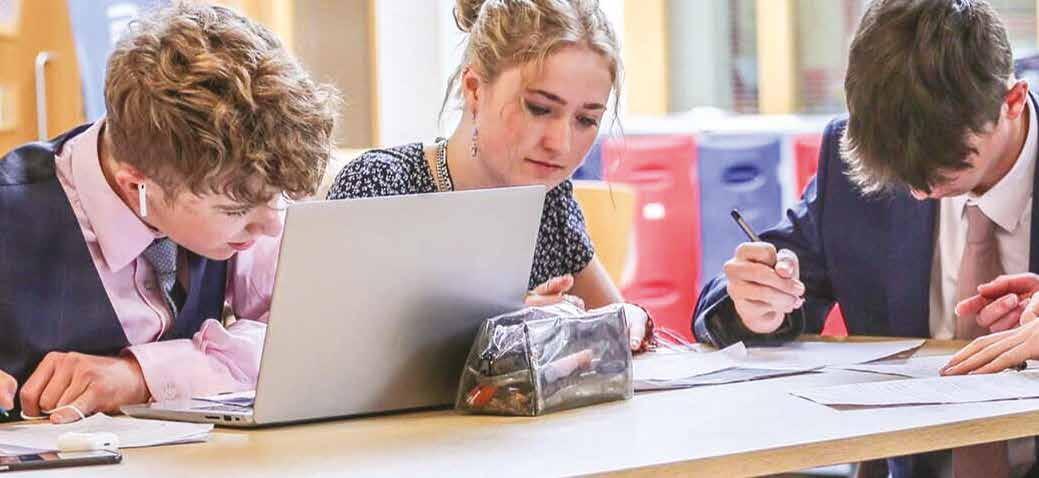
We live in a dramatically changing world and the opportunity that the study of History provides to ground our understanding of the present in the context of the past, and thus to reach more profound understanding of contemporary issues, is more important than ever. The A Level History course is designed both to engage and excite our students through the choice of relevant and thought-provoking material and also to encourage contemplation over issues that are immediate to us today. Students study three units for History A Level and outside the syllabus, the department offers regular and structured preparation for the EPQ and Oxbridge entry. There is also fortnightly Historical Society, as well as regular trips to places such as Canterbury, Hampton Court and the Tower of London and a biennial trip to Washington DC.
Grade 6 in History if studied at GCSE.
• Paper One: USA 1945-1980. The American Dream? This paper offers the history of the post-war USA up to the election of Ronald Reagan as President in 1980, covering such issues as the Civil Rights struggle, the JFK assassination, the Vietnam War and the Watergate Scandal.
• Paper Two: The British Empire c.18571967. This paper covers the reasons for the expansion and eventual demise of the British Empire, together with the effect of the Empire on both the “subject peoples” and the British themselves.
• Coursework: a student-researched 4,500 word essay. Students will be able to choose their title from a wide range of topics including, but not limited, the French Revolution, the American Civil War, the abolition of slavery and rebellions under the Tudors.
Two 2.5-hour examinations at the end of the course and assessed coursework.
Find out more about the course at kes.school
Head of Department: Mr NJ Diver njd@kes.hants.sch.uk
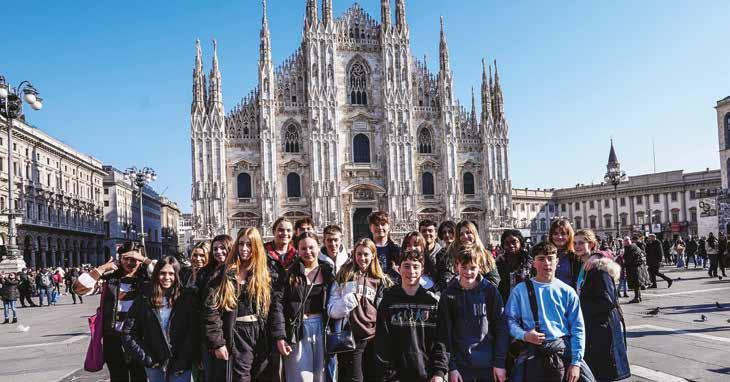
Studying Italian at A Level allows the learner to move from the physical acquisition of the language at GCSE to its practical application; using the language to enter the worlds of culture, politics, history and society in this fascinating and beautiful country.
With one of the leading European economies and a healthy manufacturing and export market, many employers seek people who speak Italian as well as English fluently; Italian can be combined with a wide variety of subjects, both at A Level and as a Degree. It is key to future studies, research and careers in the fields of art history, literature, archaeology, philosophy, music, fashion, and business. In addition, the skills learnt along the way; communication, rationalisation, organisation, intercultural awareness, are all highly valued in the job market.
Grade 7 in Italian.
• Changes in Italian society (evolution of the Italian family, education, world of work).
• Political and artistic culture in Italian speaking countries (music, media, cultural heritage).
• Italy: a society in evolution (the positive impact of immigration in Italy, the problems of migration, the North/South divide).
• From Fascism to today (Mussolini’s rise to power, Fascism during the Second World War, from dictatorship to democracy).
• Paper 1: Listening, Reading & Writing
• Paper 2: Writing
• Paper 3 : Speaking
Find out more about the course at kes.school
Head of Department: Mrs S Rugge-Price srp@kes.hants.sch.uk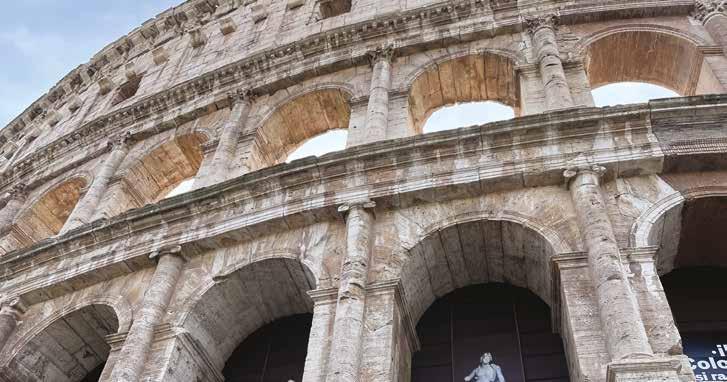
Latin A Level offers students the opportunity to develop their language skills along with their appreciation of Latin literature. A highly regarded qualification, Latin works well with any combination of subjects, including the sciences, dealing with both the logical and the imaginative. The study of Latin leads to a greater understanding and appreciation of our own civilisation and heritage and is still highly relevant to the world today.
Grade 7 in Latin.
• Development of Linguistic skills and nuance.
• Cultural understanding of either Republican or Imperial Society through reading of prose set verse text.
• Cultural understanding of either Roman satire or epic poetry through reading of verse set text.
• Paper 1: Unseen translation (33%)
• Paper 2: Prose composition/ comprehension (17%)
• Paper 3 & 4: Prose literature & Verse literature (25% per paper)
Find out more about the course at kes.school
Head of Department: Miss IM Painter imp@kes.hants.sch.ukMathematics is the most studied of all A Level subjects, both here and nationally. Not only is the subject challenging and interesting, but it also gives students the skills and knowledge to access a wide range of courses for further study. Students are required to study both Mechanics and Statistics in addition to the Pure content of algebra, calculus and trigonometry. We follow the OCR B (MEI) specification.
The course emphasises how mathematical ideas are interconnected and how mathematics can be applied to model situations using algebra and
other representations, to help make sense of data, to understand the physical world and to solve problems in a variety of contexts, including social sciences and business. It prepares students for further study and employment in a wide range of disciplines involving the use of mathematics.
Grade 7 in Mathematics.
• Pure mathematics
• Mechanics
• Statistics
Methods of Assessment
Three 2-hour examinations
Find out more about the course at kes.school
OCR A Level in Further Mathematics B (MEI) is both deeper and broader than A Level Mathematics. It is designed for students with a real enthusiasm for Mathematics. As well as building on the algebra and calculus introduced in A Level Mathematics, the A Level Further Mathematics core content introduces complex numbers and matrices, fundamental mathematical ideas with wide applications in mathematics, engineering, physical sciences and computing. Choosing Further Mathematics means that you do a double A Level course in Mathematics requiring you to commit to continuing studying with four A Levels.
Grade 8 in Mathematics.
• Pure mathematics
• Mechanics
• Statistics
Methods
• Mandatory Core Pure Examination (50%)
• Non-core content options: additional mechanics, statistics, or pure options as well as numerical methods and modelling algorithms.
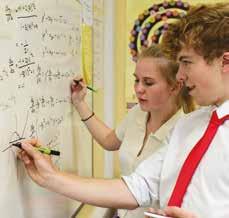
Find out more about the course at kes.school
Head of Department: Mr GA Eyssens gae@kes.hants.sch.uk
I joined KES in Year 7.
A Levels Studied at KES: Mathematics | Further Mathematics | Physics |Computer Science
Clubs & Societies: Sustainability Prepositor, Robotics and Maths Clinic
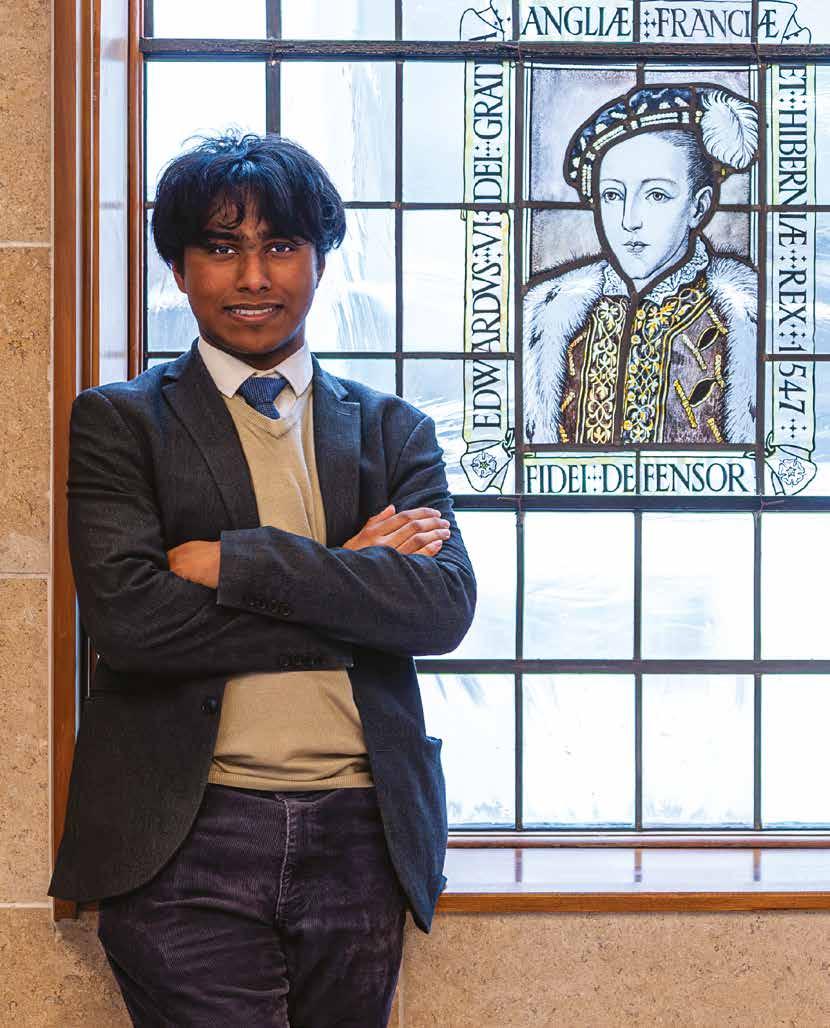
While I’ve been at KES since I was in Year 7, joining Sixth Form has been a completely different experience that I have thoroughly enjoyed. I decided to specialise in very maths-heavy subjects, which I (perhaps surprisingly) enjoy a lot. A big part of why I love my subjects is the tight-knit bond I developed with my classmates and teachers over the past 2 years. Every lesson is something I look forward to, and I am never shy about asking for help or jumping in to explain something to the class. Moreover, the teachers really encourage us to explore beyond the syllabus. For me, that meant diving into Physics Olympiads, Robotics Competitions and Team Maths Challenges. Aside from being a lot of fun, I managed to achieve really impressive results which has really boosted my university applications and fuelled my passion for my subjects.
Aside from academics, I’ve found that the most valuable experiences come from taking on responsibilities, like in my role as the school’s Sustainability Prepositor. This has involved presenting assemblies for the whole school, writing articles, leading meetings, and even appearing on the BBC! Getting involved in sustainability has been really fulfilling to me and is something that I definitely want to incorporate into my further study/career. Plus, I have found that it’s a good change of pace from my very technical A-Levels. I think generally, clubs, societies, and just hanging out in the Concourse, have been really useful for me to step away from my intense workload, and have allowed me to also be super social over my time at KES.
My Highlights during Sixth Form:
• Really fun and friendly class environment
• All the opportunities for academic competitions and challenges
• Playing (and winning) card games in the Concourse
My plans after KES:
Next year, staying on the theme of maths, I will hopefully be studying Pure Mathematics at Imperial College London, or Maths and Philosophy at The University of Bristol. This will hopefully set me up well to break into the field of Artificial Intelligence, which is something I have recently found a keen interest in, through student robotics and my computer science coursework.
My message to students looking to join the Sixth Form:
There are countless opportunities waiting for you at KES, whether it’s taking on a senior position to develop your leadership skills, participating in competitions that are absolute gold dust for your university application, or simply engaging in something just for fun. Make the most of everything because these two years will fly by far too quickly.
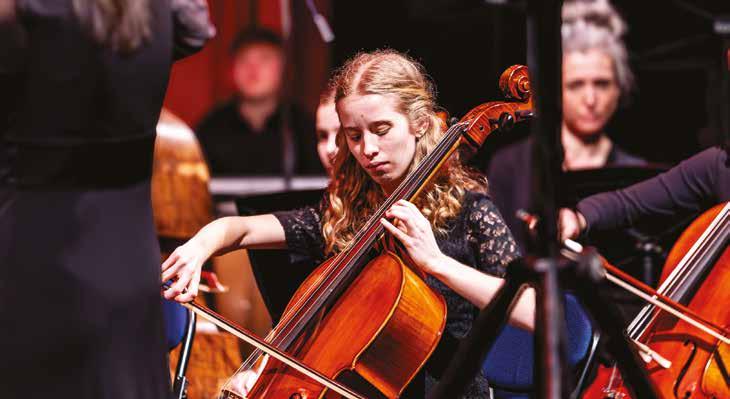
The A Level Music course imaginatively explores the three musical disciplines: performance, composition and analysis. Following the OCR specification, students can tailor the weighting of their coursework to their strengths. Each student receives excellent levels of guidance in preparing a performance recital, supported by a wide range of musical expertise across genres such as Jazz, Classical, and Musical Theatre. Our musicians benefit from access to up-todate music technology, and a resident accompanist on staff.
Grade 6 in Music if studied at GCSE or completed grade 6 on an instrument or voice.
• Instrumental music of Haydn, Mozart and Beethoven
• Popular song – blues, swing and big band
• Development in Jazz
• Religious music of the Baroque period
• Programme music 1820-1910
• Innovations in music, 1900-present day
Methods of Assessment
• Unit 1: Performing (35%)
• Unit 2: Composing (25%)
• Unit 3: Historical Study (40%)
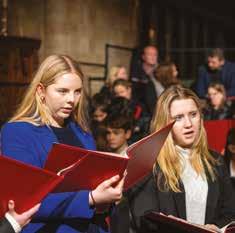
Find out more about the course at kes.school
Head of Department: Ms T Hayden tjh@kes.hants.sch.uk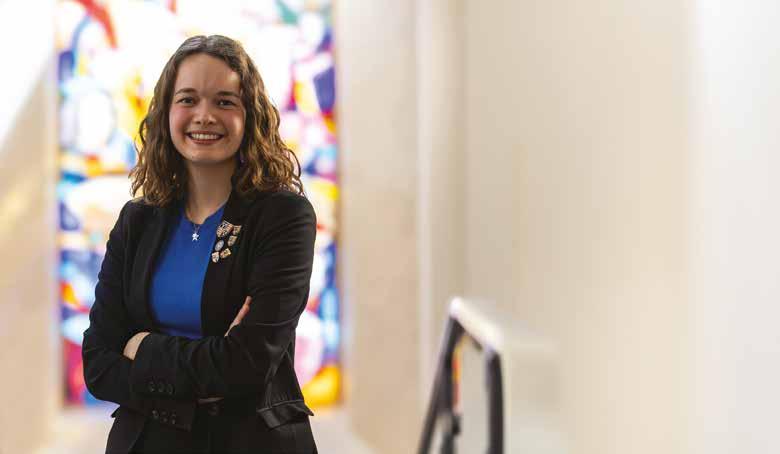
I joined KES in Year 7.
A Levels Studied at KES:
Clubs & Societies: Chamber Orchestra, Symphony Orchestra, Chamber Choir, String Sextet, Netball and History Coundley Society
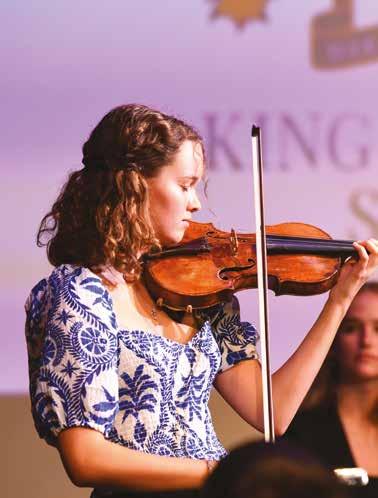
I’ve loved my time in the Sixth Form at KES. The smaller classes mean you get really specific feedback from your teachers, which is invaluable during A Levels. We also got the opportunity to do an EPQ, and I really enjoyed exploring a topic to a deeper level than we would be able to cover in class. The Concourse is also a really great study environment, as well as a place to get to know more people. I have loved all the extra opportunities that you are offered during Sixth Form, including organization of events, being able to perform a concerto with the Symphony Orchestra in the Senior Spring Concert, and also getting better parts in the musicals (I was lucky enough to perform as Lina in Singing in the Rain in my Lower Sixth year). The support for university applications is also amazing; my tutor was so useful in helping me edit my personal statement, and the Director of Music’s encouragement helped me to gain a choral scholarship at Cambridge. The pastoral team have also been really supportive, as well as KJ and everyone else in the supercurricular office who regularly put out careers advice, internships and schemes you can get involved with.
My Highlights during Sixth Form:
• Musical opportunities
• Small classes
• Closer relationships with staff
My plans after KES:
I have an offer to study History and Spanish at Cambridge, so I really hope that I get the grades to make it! I currently have no set plans for what my long term future looks like, but hope that by doing things I love it will become clear over the next 4 years…
My message to students looking to join the Sixth Form:
Absolutely do it! It’s a great place to be and I haven’t regretted anything; I’d do it all again (except maybe not the exams!!).
Sophie recently won the Hubert Parry Young Vocalist Award at the Bournemouth Music Competitions Festival in addition to gaining a Choral Scholarship to Girton College, Cambridge at the recent choral awards!
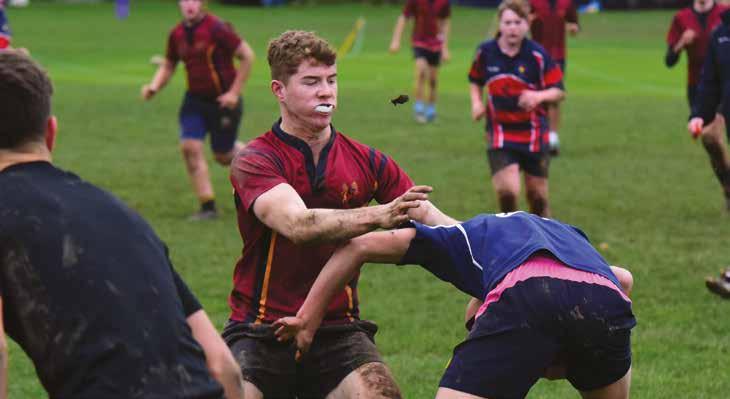
Studying Physical Education at A Level will give you a fantastic insight into the amazing world of sports performance. Not only will you have the chance to perform or coach a sport through the non-examined assessment component, you will also develop a wide range of knowledge into the how and why of physical activity and sport.
The combination of physical performance and academic challenge provides an exciting opportunity for students. You will be able to apply the vast array of theoretical topics within the subject to your own sporting experiences, and in turn learn how to develop and improve performance. Physical Education is studied through a range of different contexts and the impact it has on both ours and others’ everyday lives. You will
learn the physiological way our body works in sport, the Psychological reasons that some people outperform others, and will delve into the ethical considerations behind the use of drugs and the influence that modern technology is having in and on physical activity and sport. Alongside this you will develop a programme based on improving your own performance in sport.
Grade 6 in Physical Education if studied at GCSE.
• Applied Anatomy and Physiology
• Skill Acquisition
• Sport and Society
• Exercise Physiology
• Biomechanical movement
• Sport Psychology
• Sport and Society and the role of Technology in sport.
• Paper 1: Factors affecting participating in physical activity and sport
• Paper 2: Factors affecting optimal performance in physical activity and sport
• Coursework: Practical performance in physical activity and sport
Find out more about the course at kes.school
Head of Department: Mr A J Leathem ajl@kes.hants.sch.uk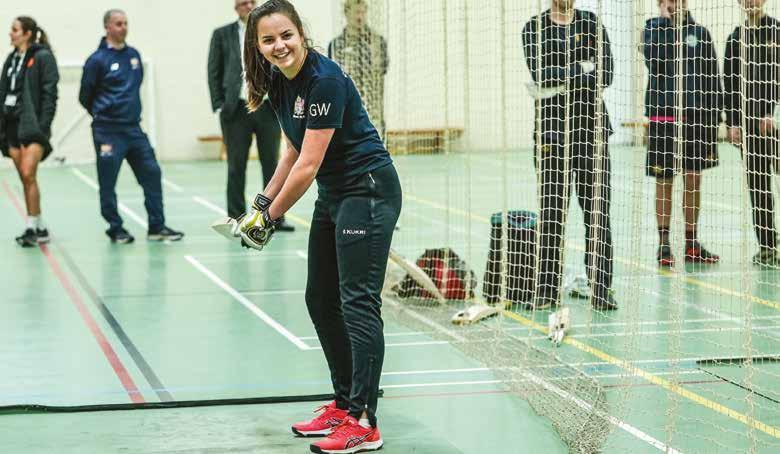
I joined KES in Year 7.
A Levels Studied at KES: History | Chemistry | Philosophy
Clubs & Societies: Deputy Head of School, After school Hockey, Netball and Cricket, Summer Camp Charity, Philosophy Society.
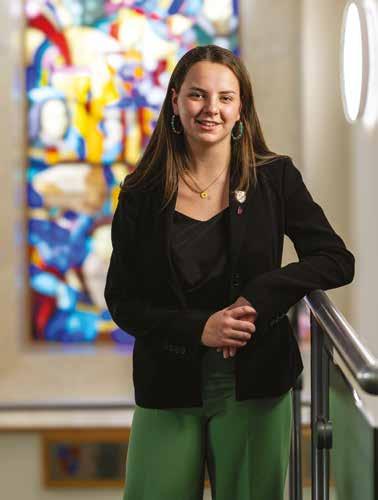
This school has taught me so much. From the moment I took my first step into secondary school life as a 12 year old, to now leaving the Sixth Form after 7 years; it has been a journey to say the least. Sixth Form in particular has been bigger and better than I ever could have imagined. Walking into the concourse on your first day as a Lower Sixth, whether or not you have been here for 5 years already, is going to be scary.
Within the first couple of months it is inevitable that adjusting from GCSE’s to A Levels, wherever you go, can pose a challenge. My combination of A levels is pretty abstract and they are very different. However, the fact that they are so different, compliments them in a way. I love to be versatile in my thinking and this mixture of subjects fulfils both this and a healthy balance with work- so don’t be afraid to take outlandish combinations.
Alternative to academic opportunities; sport has provided sanity and joy, music has inspired me to perform as a lead singer in a band and a deputy position has trained me in public speaking in front of an audience of a thousand. Colleges provide education, but KES provides a lifestyle. I’ve been given everything and anything I could have asked for and as I leave this school, I look back on so many happy memories that I will treasure forever.
My Highlights during Sixth Form:
• Charity positions. This offers Sixth Formers amazing opportunities to communicate with children, work in a team and find fun ways to fundraise, bringing the whole of the school together.
• The environment of the Concourse. A place where students can take a breather, drink hot chocolate and enjoy socialising in a modern space which lies separately from the main school.
• Academic and emotional support. It is so nice to be able to get to know the staff that run the Sixth Form, as well as your academic teachers. Whether you are having a good day or a bad day, they are always on hand to have a chat and aid you in your education and lives whenever you need it.
My plans after KES:
I am planning on taking a gap year, working as a sports gap student at KES, which will be broken up by a ski season and interrailing. I aim to use this year as a break from education and a time to develop on different skills which I will need for university and beyond. I have been offered a deferred place at Exeter to study liberal arts, but have not got a set path on where I want to be after university; there is a certain beauty of being in the unknown.
My message to students looking to join the Sixth Form:
Whilst some would argue it is just about getting the grades to go to university, this time in our lives is so important. It shapes who we are and who we want to be. Being able to say you’ve travelled to South Africa on a sports tour, helped a young carers charity through fundraising or made genuine friends for life, is so rare; so much more than a piece of paper with a letter on it. KES allows you to give it everything you’ve got.

Students follow the OCR B A Level Physics course endorsed by the Institute of Physics. Many students go on to study higher education to study Engineering and Physics amongst a wide range of other disciplines. Taught simultaneously by a pair of Physics teachers, students experience two strands of the course at once.
Fundamental aspects of Physics that underpin later study are covered in the Lower Sixth with many areas that overlap significantly with IGCSE Physics. This enables the students to make an easier transition to A Level Physics.
Grade 7 in Physics, or 7/7 in dual award Science.
• Dynamics and Mechanics along with Imaging and Signalling
• Sensing and Materials along with Wave and Quantum Behaviour
• Research Project
• Modelling of radioactivity and capacitance
• Cosmology and Special Relativity
• The Ideal Gas Laws and Gravity
• Circular and Periodic motion
• Electromagnetism
• Electric and Magnetic Fields
• Atomic and Particle Physics along with Uses of the Atom
• Paper 1: Fundamentals of Physics (41%)
• Paper 2: Scientific Literacy in Physics (37%)
• Paper 3: Practical Skills in Physics (22%)
Practical Endorsement in Physics (nonexam assessment) reported separately.
Find out more about the course at kes.school
Head of Department: Mr RS Simm rss@kes.hants.sch.uk
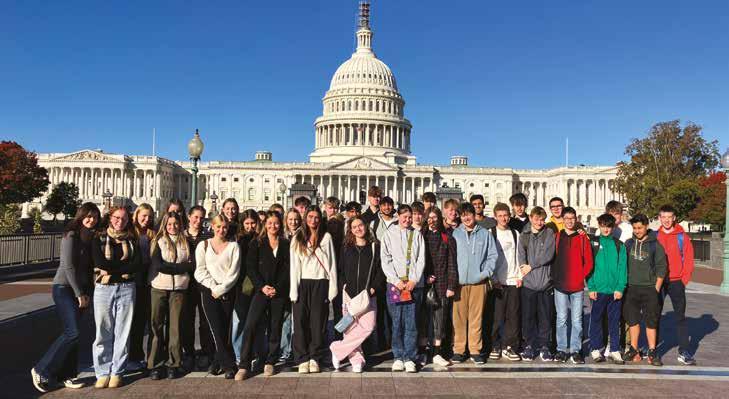
The A Level course studies the implications and practice of different political systems, as well as in-depth studies of different political ideologies. Politics deals with such ideas as power, authority, rights, liberty, and justice and examines contemporary politics as it occurs.
Through your study of contemporary politics, you will develop a strong understanding of the factors shaping both the British and American systems. You will also gain insight into some of the great political ideas which have shaped the world we live in. This subject helps in the development of discussion and debating skills and encourages you to think beyond the constraints of a textbook.
The study of Politics will certainly provide many opportunities for you to become a more knowledgeable and critical thinker.
Grade 6 in a Humanities subject.
UK government and politics
• Democracy and participation
• Political parties
• Electoral systems
• Voting behaviour and the media
• The constitution
• Parliament
US government and politics
• US Constitution and federalism
• US Congress
• US presidency
• US Supreme Court and civil rights
• US democracy and participation
Political ideas
• Anarchism
• Conservatism
• Liberalism
• Socialism
• Paper 1: UK Politics and Core Political Ideas
• Paper 2: UK Government and Non-core Political Ideas
• Paper 3: Government and Politics of the USA
Find out more about the course at kes.school
Subject Co-ordinator: Mrs RK Potter rkp@kes.hants.sch.uk

Psychology is one of the most popular A Level and degree course in the UK, demonstrating that although Psychology is a new subject for many at A Level it often becomes a passion that develops into a lifelong career. Students are encouraged to become independent thinkers who can critically analyse. The answer to the question ‘Why am I the way I am?’ is multifaceted, and therefore the study of Psychology is also very broad. It includes studying the relative influences of genes, upbringing and the environment on behaviour. Key historical events that changed the world are explored and students analyse how these can be explained from a psychological perspective. The causes and treatments of mental illnesses including depression, anxiety, phobias, OCD and schizophrenia are also investigated. All students have the opportunity to carry out and analyse their own research throughout the course,
for example in the Lower Sixth students visit Marwell Zoo to observe animal behaviour. Other course events include a mock trial at the Royal Courts of Justice and an interactive ‘Brain Day’ for which an acclaimed neuroscientist helps students to understand the influence of the brain on behaviour.
Grade 6 in Biology, or 6/6 in dual award Science.
• Psychopathology- OCD, phobias, depression
• Memory- including eyewitness testimony
• Schizophrenia- diagnosis, causes and treatments
• Forensic Psychology- including how to catch a criminal!
• Social Influence- including why we obey extreme orders
• Three two-hour exam papers
Find out more about the course at kes.school
Head of Department: Mrs
EC Brindley-Ewan ecbe@kes.hants.sch.uk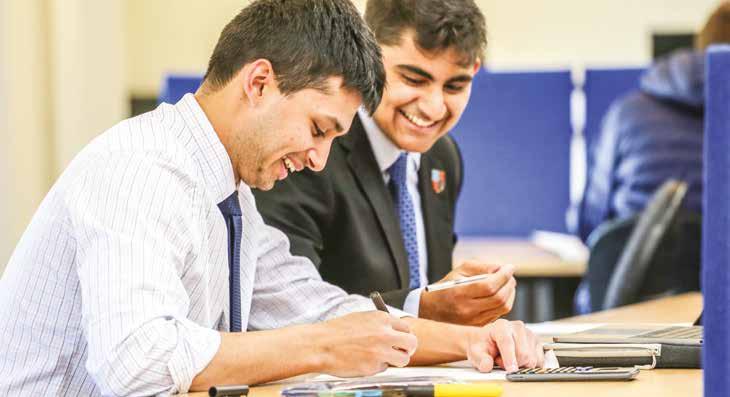
Philosophy, Ethics and Religion come under the auspices of Religious Studies. The aim of the subject is to provide students with sound knowledge of key thinking in three key areas which help humans explore questions of meaning.
Studying this subject is not simply about learning a body of knowledge, it is also about learning an invaluable skill – how to recognise, evaluate and construct arguments, whether on the page or in classroom debate. The department aims to promote honest and robust discussion and to provide students with a stimulating, enjoyable and academically rigorous study of philosophy, ethics and developments in religious thought.
Grade 6 in Religious Studies if studied at GCSE.
• Philosophy of Religion: students study philosophical language and thought, and issues and questions raised by belief.
• Religion and Ethics: students explore key concepts and the works of influential thinkers, ethical theories and their application.
• Developments in Religious Thought: students study Christianity systematically, exploring various topics.
• Paper 1: Philosophy of Religion (33.3%)
• Paper 2: Religion and Ethics (33.3%)
• Paper 3: Developments in Religious Thought (33.3%)
Find out more about the course at kes.school
Head of Department: Mr AE Cross aec@kes.hants.sch.uk
Spanish at A Level is the gateway to communication with the over 400 million speakers worldwide and a key to a fun and truly diverse culture. Lower Sixth builds on the foundations laid at IGCSE. Familiar topics form the basis of the language course, but a lot of new vocabulary is added. As the course progresses, more advanced structures are introduced, and these require a sound understanding of the more basic structures if they are to be effectively added to your linguistic armoury. By the end of the first term, you should find yourself beginning to cope successfully with understanding and communicating in genuinely advanced Spanish. By the end of the course, our best students achieve near-fluency in a wide variety of topics and situations.
Grade 7 in Spanish.
Lower Sixth
• Aspects of Hispanic society: current trends: Traditional and modern values, cyberspace, gender equality.
• Artistic culture in the Hispanic world: Role models, Spanish regional identity, cultural heritage.
• Film - El Laberinto del Fauno
Upper Sixth
• Multiculturalism in Hispanic society: immigration, racism, integration.
• Aspects of political life in the Hispanic world: young people’s issues, monarchies and dictatorships, popular movements.
• Literature - La Casa de Bernarda Alba
• Paper 1: Listening, Reading & Writing
• Paper 2: Writing
• Paper 3: Speaking
Head of Department: Mrs EM Ladislao eml@kes.hants.sch.uk
Find out more about the course at kes.school

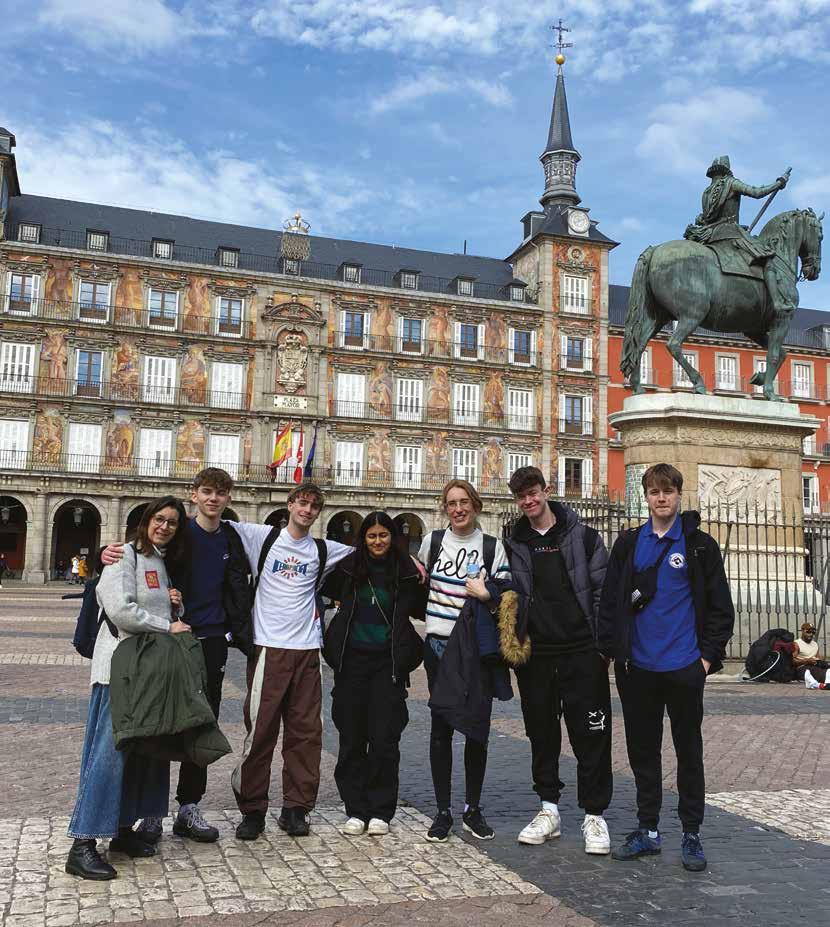
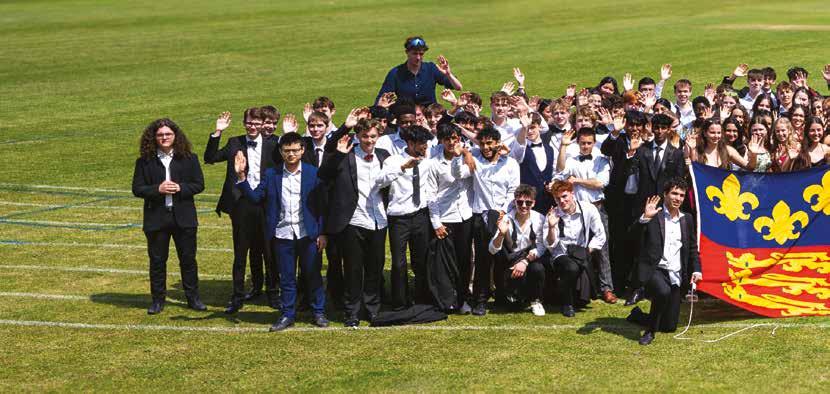
SEPTEMBER 2024
External Applications Open
Please complete our online enquiry form to receive your application pack if your are an external applicant wishing to join our Sixth Form in September 2025.
Students who are current students of our Senior School do not need to apply.
WEDNESDAY 12 FEBRUARY 2025
Closing Date for External Applications
Please complete your application to join us in September 2025 by this date.
THURSDAY 27 JUNE 2024 17 OCTOBER & 5 DECEMBER 2024 SATURDAY 8 MARCH 2025
KES Sixth Form Open Evening
This event is for students currently in Year 10 and their parents/guardians. This event will provide a strong insight into the exciting subjects offered in the Sixth Form, and will help students seriously consider their next steps.
External Applicant Sixth Form Tea
These are informal, low-key events for current Year 11 students and their parents which takes place during a normal Sixth Form day, giving you the opportunity to see King Edward’s on a typical afternoon.
Sixth Form Interviews for External Applicants
Senior members of staff and subject specialists will interview prospective candidates.
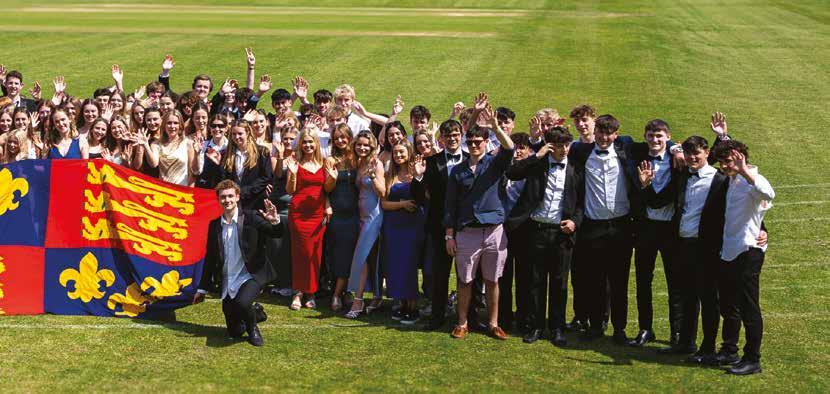
FRIDAY 14 MARCH 2025
Sixth Form External Applicants Offers Emailed
We will email all applicants regarding offers on this date.
WEDNESDAY 26 MARCH 2025
Please accept your offer by this date.
In the Summer Term of Year 11, you will sit your GCSE examinations and assessments.
THURSDAY 21 AUGUST 2025
You will receive your GCSE results on this date. If you are due to join us in September 2025 and need to contact the Sixth Form about your results, please contact the school on 023 8070 4561.
2025
Start at King Edward VI Sixth Form On successful completion of your GCSE courses and having met the entry requirements, we look forward to welcoming you to our Sixth Form on your first day.
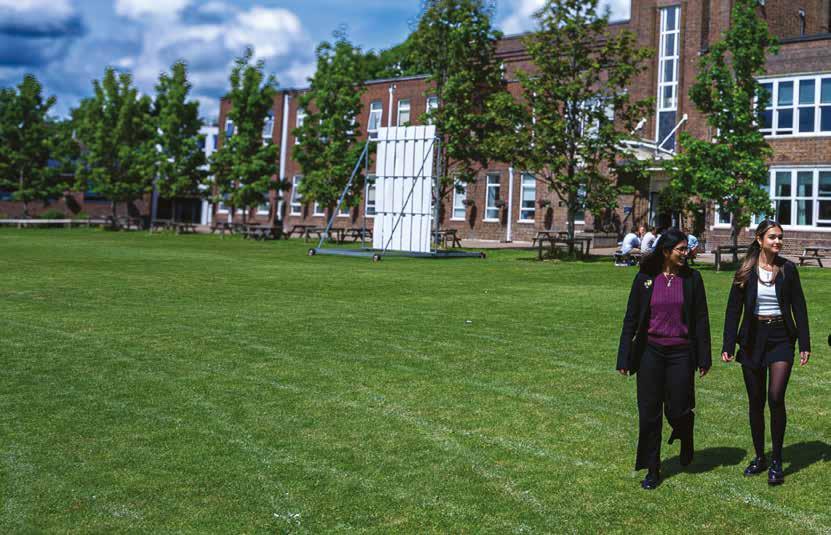
We are excited to welcome you to our Sixth Form in September 2025, the below should act as a guide for your next steps before joining us.
For external applicants we would like students to achieve at least six GCSEs at grade B/6 or higher. We also expect all students to have achieved a minimum of C/4 grade in both English Language and Mathematics.
Additionally, we expect students to have achieved a B/6 or higher at GCSE in the
relevant subject or its near equivalent unless there are mitigating factors. An A/7 is preferable, however, and in a number of subjects such as Biology, Chemistry, Physics, Mathematics and Languages it is the expectation that a student achieves at least an A/7 grade at GCSE. This is to ensure that the student’s knowledge and skills are at a suitable level to allow access to the subject in the Sixth Form and to offer the realistic prospect of a successful outcome at A Levels.
If there is a subject that you would like to study at A Level but haven’t studied previously, you should have done well at GCSE level in an equivalent subject.
The continuation of a subject into the Upper Sixth is dependent on achieving a pass grade in the Lower Sixth examinations. Students must study a minimum of three courses to full A Level.
If you have any questions about the curriculum at Sixth Form, please email Dr Waymark bmw@kes.hants.sch.uk or call 023 8070 4561.
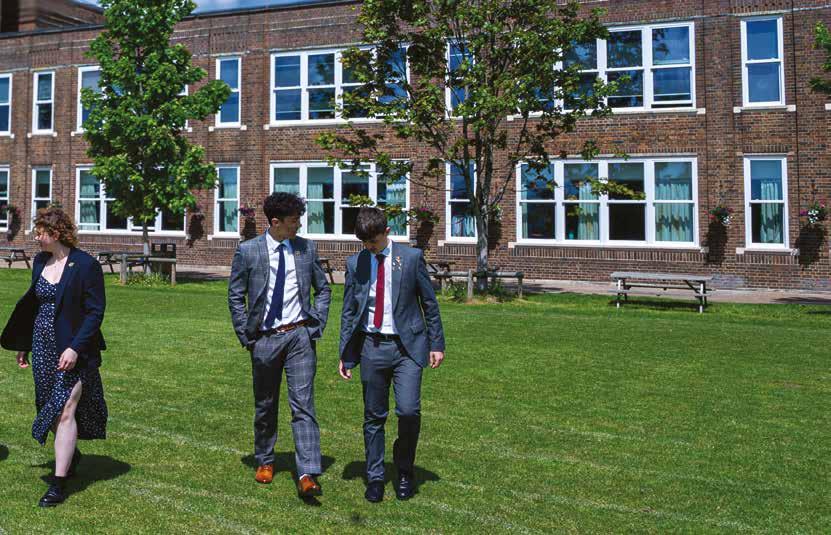
We are excited that you are looking to join our Sixth Form in September 2025.
The first step in your journey to joining us is to email our Registrar, Mrs Sheppard (registrar@kes.hants.sch. uk) to request an application pack. The deadline for all applications is Wednesday 12 February 2025. Once applications are reviewed, applicants will then be invited for an interview with a senior member of staff and subject specialists here at our Sixth Form.
As a result of these interviews, and
on the basis of a student’s potential GCSE results, either conditional or unconditional offers of a Sixth Form place may be made via email. The closing date for acceptances is Wednesday 26 March 2025.
Any questions? If you have any questions about the application process, please contact our Registrar, Mrs Sheppard, who will be happy to answer any questions you may have.
We look forward to welcoming you to our Sixth Form soon!
On successful completion of your GCSE courses and having met the entry requirements, you will have automatic entry to the Sixth Form. If you have any subject specific queries in the meantime, please email Dr Waymark (bmw@kes. hants.sch.uk) or call 023 8070 4561.
We encourage students to talk to their subject teachers before choosing your A Level subjects. Your tutor will be able to give you advice on your intended combination of subjects too.

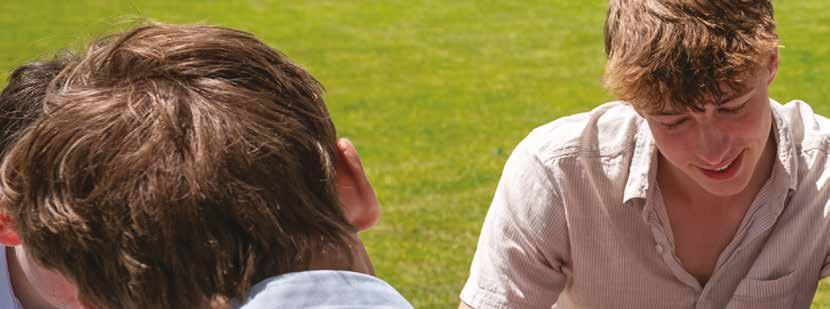
The fee for 2024/2025 is £21,294 per annum all-inclusive with a 5% reduction for brothers and sisters who are not receiving any bursary awards. For the convenience of parents, this annual fee is divided into three termly payments of £7,098. All sports, sport fixtures, societies and clubs are included within the fee. The only exception is Sailing Club, which requires a £60 yearly membership fee, Paddle Boarding, which is pay as you go and curriculum trips, which are subsidised. Optional extras include: lunches, school bus, insurance, instrumental tuition, residential trips and tours.
For 2024/2025, the cost of lunch is £6.25 per day. For that price, students have a choice of salads, soups, sandwiches, hot dinners, vegetables and desserts. Alternatively, students can opt for a ‘grab and go’ lunch from the Concourse café.
The school offers a number of meanstested bursaries each year to pupils entering the Sixth Form. Bursaries will have a maximum value of 100% of the full fee which would value them at £21,294 in 2024/2025. In addition to taking account of all relevant sources of income, the school takes account of relevant capital assets. Applicants should note that subject to your capital assets, if your gross family income is below approximately £46,000 you may qualify for a full bursary. If your gross family income is in excess of approximately £92,000 you would not qualify for any assistance. Between these two figures a sliding scale will operate. This scale is subject to annual review. Once awarded, the entitlement to a bursary will remain with a student throughout his or her time at the school subject to the standard bursary terms and will be reviewed annually.
This award will, in the first instance, be awarded to an applicant who will be
studying Economics and/or Business in the Sixth Form at King Edward’s and can be up to 100% of the fee for both years. The family income need not come within the requirements for a formal bursary but we will need to establish with parents that financial assistance is justifiable.
Sir Edward Abraham Memorial Award for Chemistry and Biology Awards of up to 25% non means-tested can be allocated to a student from the state sector who is studying Chemistry and/or Biology in the Sixth Form at King Edward’s. This can be in conjunction with a means-tested bursary and the bursarial element of the award will be calculated in accordance with the income levels already quoted.
Scholarships of up to £700* are available for talented sports performers at entry into the Sixth Form. Candidates will have competed at regional level or higher in their chosen sport(s) and will be invited for interview. Members of the Sports Faculty may also ask to observe a fixture or training session. Successful
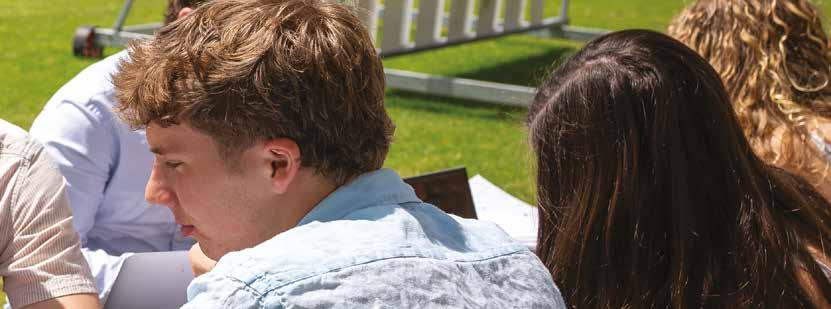
If you are a current Year 11 student at King Edward’s these are the scholarships available to you.
candidates will be invited into the Elite Sports Performer programme and will be expected to demonstrate a high level of commitment to school sport as well as being a role model to other students.
Sixth Form Music Scholars reflect our most able and highest achieving performers. Scholars gain a wealth of benefit as we prepare young musicians for performance careers and university study. Scholarships up to £1,000* are awarded on audition to successful candidates who will be taking A Level Music. Scholarships will differ depending upon a range of circumstances. Auditions will take place in March 2025. Applicants will be invited and should be performing at grade 8 standard on one or more instruments. The candidates would be required to perform a piece on their first instrument, alongside some oral tests and sight-reading.
*The amount will be awarded once, and will be credited over the two years of Sixth Form study.
Academic scholarships are awarded to a limited number of internal pupils moving into the Sixth Form. These are awarded to pupils of the highest academic merit and carry an annual value of up to 10% of the fee. There is no need to apply for an academic scholarship as all Year 11 pupils are automatically eligible for consideration.
A number of studentships, with an annual value of up to 20% of the fee, will be available on entry to the Sixth Form for internal candidates. To qualify, a student should be assessed by the school as likely to qualify for entry to the Sixth Form on academic grounds. The family income need not come within the requirements for a formal bursary but we will need to establish with parents that financial assistance is justifiable. A studentship could be awarded in addition to a scholarship. If you wish to apply for a Sixth Form Studentship of up to 20% fee remission, please contact the Bursar (bursar@kes. hants.sch.uk) for an application form.
Scholarships of up to £700* are available for talented sports performers at entry into the Sixth Form. Candidates will have competed at regional level or higher in their chosen sport(s) and will be invited for interview. Members of the Sports Faculty may also ask to observe a fixture or training session. Successful candidates will be invited into the Elite Sports Performer programme and will be expected to demonstrate a high level of commitment to school sport as well as being a role model to other students.
Sixth Form Music Scholars reflect our most able and highest achieving performers. Scholars gain a wealth of benefits as we prepare young musicians for performance careers and university study. Scholarships up to £1,000* are awarded on audition to successful candidates who will be taking A Level Music. Scholarships will differ depending upon a range of circumstances. Auditions will take place in March 2025. Applicants will be invited and should be performing at grade 8 standard on one or more instruments. The candidates would be required to perform a piece on their first instrument, alongside some oral tests and sight-reading.
*The amount will be awarded once, and will be credited over the two years of Sixth Form study.
If you currently receive a bursary then that will continue in to the Sixth Form.

What GCSE grades do I need?
We expect students to have achieved a B/6 or higher at GCSE in the relevant subject or its near equivalent unless there are mitigating factors. An A/7 is preferable, however, and in a number of subjects such as Biology, Chemistry, Physics, Mathematics and Languages it is the expectation that a student achieves at least an A/7 grade at GCSE. Please see page 74 for more information.
What is the application and interview process?
If you are an external applicant, the first step in your journey to joining us is to email our Registrar, Mrs Sheppard (registrar@kes.hants.sch.uk) to request an application pack. The deadline for all applications is Wednesday 12 February 2025. Once applications are reviewed, applicants will then be invited for an interview with a senior member of staff and subject specialists here at our Sixth Form. Please see page 75 for more information.
If I’m already a King Edward’s student, do I need to apply?
If you are already a student in our senior school, we will assume you will continue your journey into Sixth Form.
On successful completion of your GCSE courses and having met the entry requirements, you will have automatic entry to the King Edward’s Sixth Form. Please page 75 for more information.
How many A Levels can I study?
All students study a full-time course of three A Levels. Those wishing to study Further Mathematics will take four A Levels (including Mathematics), and many students will choose additionally to complete the EPQ (Extended Project Qualification). Please see page 34 for more information.
What is the EPQ (Extended Project Qualification)?
In addition to the core A level subjects, students are encouraged to undertake the Extended Project Qualification. The EPQ offers an opportunity to explore in depth an area of academic interest resulting in a qualification equivalent to half an A Level, graded up to A*. Depending on the grade achieved, the EPQ is worth up to 28 UCAS points. The EPQ usually takes the form of a dissertation, but it is also possible to base it around a performance, work of art, experiment or field study. Please see page 52 for more information.
What is the dress code in the Sixth Form?
Sixth Form students are not expected to wear School uniform, but their dress and appearance should be in a style that would be appropriate for a formal business environment, as well as in keeping with a school environment.
Can I leave the school premises during the day?
We encourage students to take full advantage of directed study and free periods. Students are free to leave the school site when they do not have a timetabled lesson. To facilitate safety, students are requested to use their ID cards when exiting the gate.
How many King Edward’s Sixth Form students go on to university and what do they study?
In 2023, 124 applications were made to university by KES Sixth Form students. Of these, 97 were made by current Upper Sixth students and 27 by Old Edwardians (KES Alumni). Our students continue to study a range of subjects at university. Please see page 30 for more information.
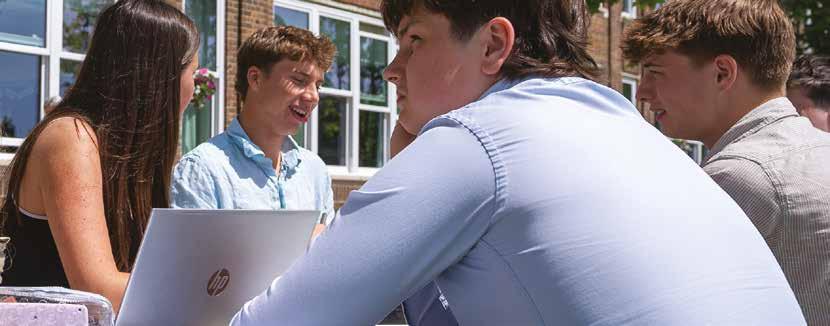
How many King Edward’s Sixth Form students go to Oxbridge?
In 2023, 6 students were accepted into Oxbridge.
What support is available regarding Higher Education and careers advice?
As a Sixth Form student you'll have an experienced team dedicated to supporting you during your time with us. Please see page 32 for more details.
Will I receive help with applying for work experience?
A flexible work experience programme is available to all students, providing an insight into an array of possible careers. Please see page 32 for further information.
What co-curricular activities are available?
There is something to suit everyone in the clubs and societies offering at King Edward’s. Sixth Formers, particularly, take a leading role in running our engaging offering. Please see page 24 for more information.
What trips and expeditions are available?
In previous years, Sixth Form trips have included Indonesia, Tanzania, Paris, Mexico, Honduras, Madagascar and the Galapagos as well as destinations closer to home, such as London and Brighton! Please see page 26 for more detail.
What pastoral support is available?
King Edward’s is committed to providing pastoral care of the highest quality to all of its students. Please see page 8.
What does a typical school day look like?
The majority of your timetable will be scheduled classes for your chosen subjects, but you’ll also have set periods for Games, Open Forum and Foundation Studies. The rest of your time is for private or supervised study. The management of these study periods is down to you and will help you to succeed in your subjects. Remember, the timetable doesn’t account for the work you should be doing outside of the classroom. Please see page 16 for a typical day in the life of a Sixth Former.
What financial assistance is available?
Please refer to page 76 for information on the financial assistance available to both external and internal applicants.
How many external students usually join King Edward’s in the Lower Sixth?
Typically, around 20-30 students join the Lower Sixth.
How easy is it to make friends?
The Sixth Form at King Edward’s is warm and welcoming, meaning making friends is very easy, especially as the Concourse is a sociable place just for Sixth Form students!
On joining the Sixth Form you will be assigned a Sixth Form buddy to help you find your way around, meet other Sixth Formers, and find your feet.
If I have access arrangements for my GCSEs, will I have these at King Edward’s too?
We have an experienced curriculum support (SEN) department. Please see page 8 for more information or contact Mrs Ramshaw, Head of Curriculum Support (znr@kes.hants.sch.uk).